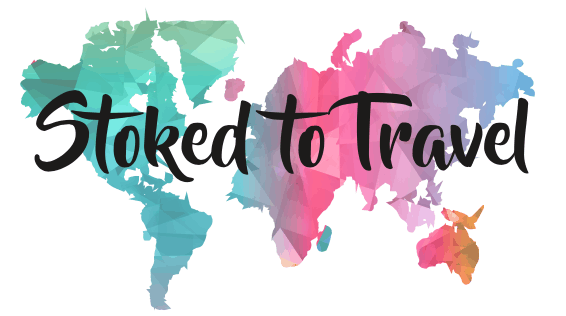

Ghana Travel Guide: Everything You Need to Know Before Visiting Ghana (2024)
Ghana, a small country on the West coast of Africa, is one of the most accessible and safe destinations in the region. And it is packed with exciting historical and cultural things to do, as well as countless outdoor adventures.
Beautiful Ghana is one of my favourite places on earth. Having spent more than six months there, it feels like a second home. From the paradise beaches in the west of the country, the remote adventures in north near Tamale or the pulsating energy of Accra. I would happily return every year for the rest of my life to soak up the life, spirit and charm of Ghana.
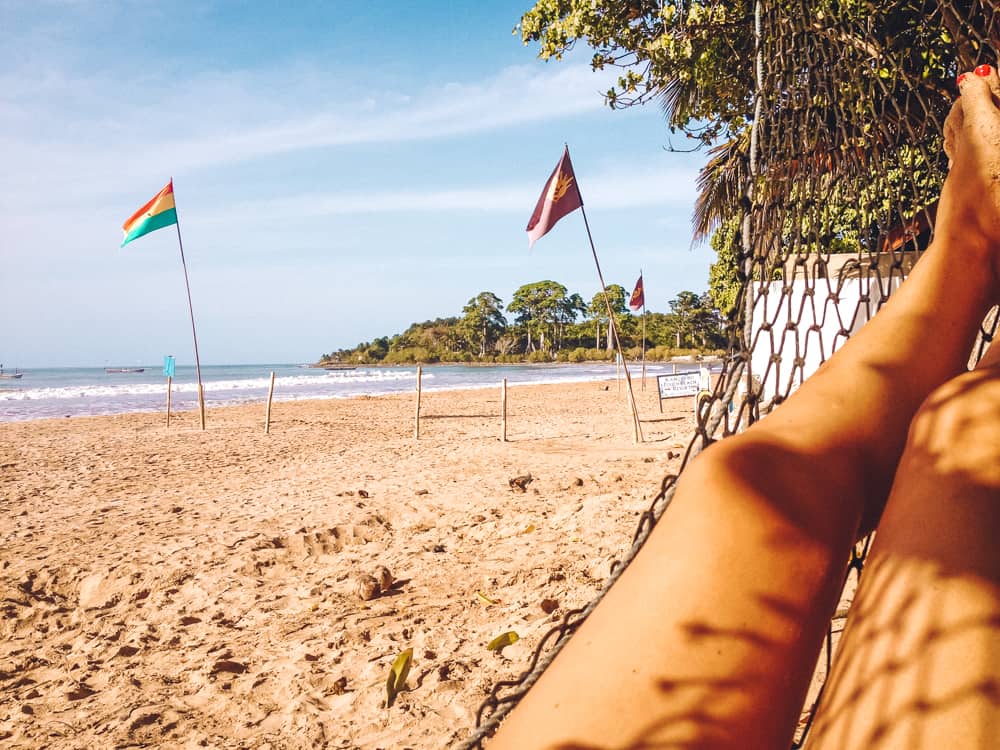
2019 was the Year of the Return, a global campaign to encourage those with Ghanaian ancestry to return and experience Ghana.
In the 1600s, Ghana was a major part of the transatlantic slave trade, with the castle at Cape Coast being the departure point for enslaved Africans from across the continent. From here, men and women from countries across West Africa were sent in boats in perilous conditions to the ‘New World’. Last year, Ghana’s campaign welcomed thousands with African heritage to retrace the journey of their ancestors, a highly emotional and spiritual experience.
If you haven’t been to Ghana yet, then you’re in for a colourful, vibrant experience. Aspects of life in Ghana can be a little hectic, and a little frustrating at times but if you prepare well, then it may well be one of the best adventures of your life! Read on to find out more.
Essential Things to Know About Ghana
History in ghana.
Before delving into this guide, it’s important to touch upon some of Ghana’s history. Its past is very complex, and Ghana had been colonised by European nations for over 2,000 years. The country gained independence from British colonisation in 1957. It was known as the Gold Coast before being renamed as the Republic of Ghana.
Ghana was the first country in sub-Saharan Africa to gain independence post-colonialism. Its president at the time, Kwame Krumah was highly celebrated for leading the nation to independence and there are many tributes and buildings dedicated to him, especially in Accra.
The flag of Ghana is red, yellow and green, with a central black star representing Ghana’s emancipation from European rule.
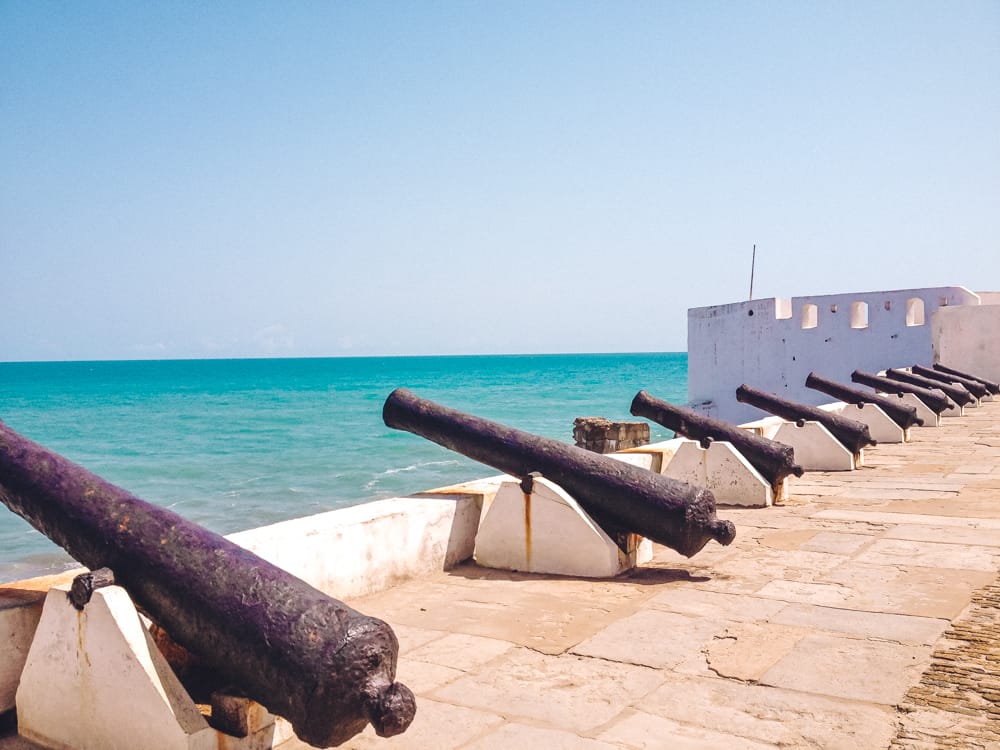
Ancient Ghana used to occupy a larger land area, which incorporated modern-day Mali, Senegal and Mauritania. Clashes between tribes gradually drove people towards the coast. Today, the Ashanti tribe is traditionally found in the central part of Ghana, surrounding Kumasi which is the country’s second city. They learnt to trade with Europeans early, which made them wealthy and helped the Ashanti to control a large area towards the coast.
Useful facts
- Ghana is on GMT time, which means the country has the same time zone as London. Geographically, Ghana is located as close to the centre of the world as you can be, as the country located closest to the intersection of 0° longitude and latitude.
- The currency in Ghana is the Ghaniain Cedi. It often written as GH₵ or GHS.
- The main resources and exports in Ghana are gold, cocoa, diamonds, oil, coffee, sugar, shea nuts and rubber. Its cocoa industry alone brings in nearly a billion pounds every year!
- There are around 30 million people in Ghana, with around 3 million in Accra. Some famous Ghanaians are Kofi Annan, who was the secretary-general of the UN, the editor of British Vogue – Edward Enniful and footballer Michael Essien.
- Ghana is one of the most prosperous countries in Africa, with good governance and an ambitious population that has led it to being one of the most stable economies in Africa.
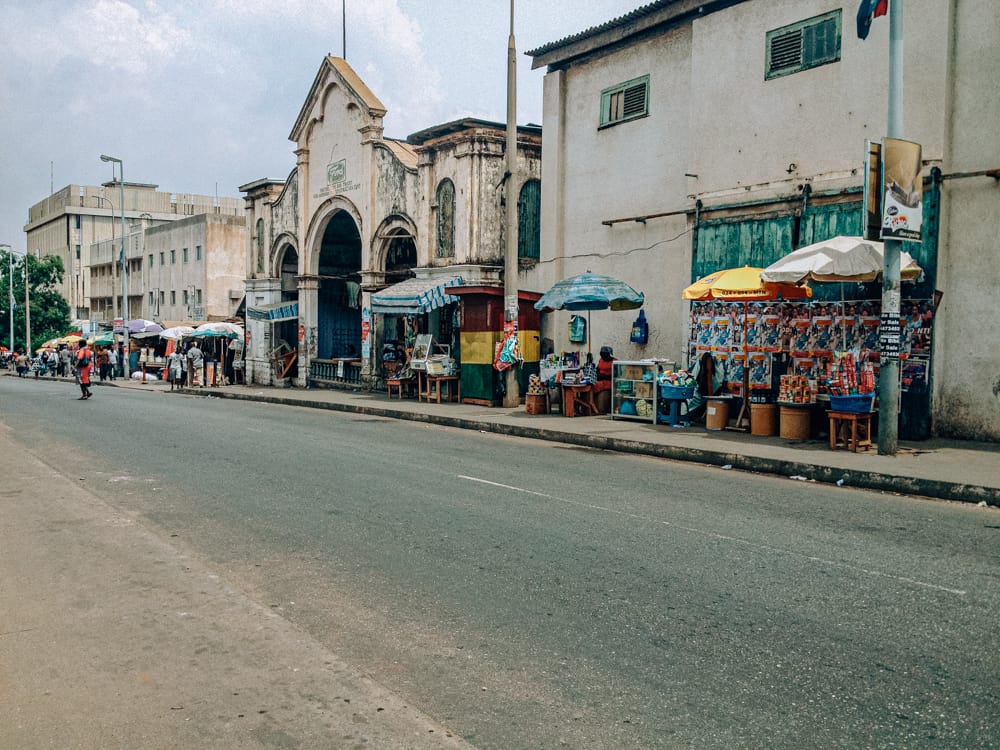
- Although there are more than 100 ethnic groups in Ghana, the Twi language of the Ashanti people is the most widely spoken language in the central and southern parts of Ghana. In the north, Dagbani is more widely spoken which is the language of the Dagoma people. Overall, there are more than 40 languages, and 70 dialects in Ghana.
- Otherwise, most people speak English, or sometimes pigeon English. Ghana, along with Nigeria, are the only English speaking country in West Africa, as the others all speak French – a legacy of their colonial past.
- Most Ghanaians identify as Christian, but many uphold traditions and beliefs linked to their tribal ancestry, particularly in more rural areas.
- There is also a sizeable Muslim community in Ghana, particularly in Accra and in the north of Ghana near Tamale. Accra recently received a brand new mosque , seating more than 15,000. Freedom of Worship is a constitutional right in the peaceful nation and as such, there is little conflict or tension between different religions in Ghana.
- Ghana has an interesting tradition in designing and building elaborate coffins. You can read more about it here . Typically, the coffin is linked to the job the person had. However, when Karl Pilkington from an Idiot Abroad visited , he chose to have a custom-built Twix Bar coffin.. These are true works of art, taking months to build and based on the belief that life continues after death.
- Ghana has a universal health care system, which covers nearly 12 million Ghanaians. The country has some of the best medical care in Africa.
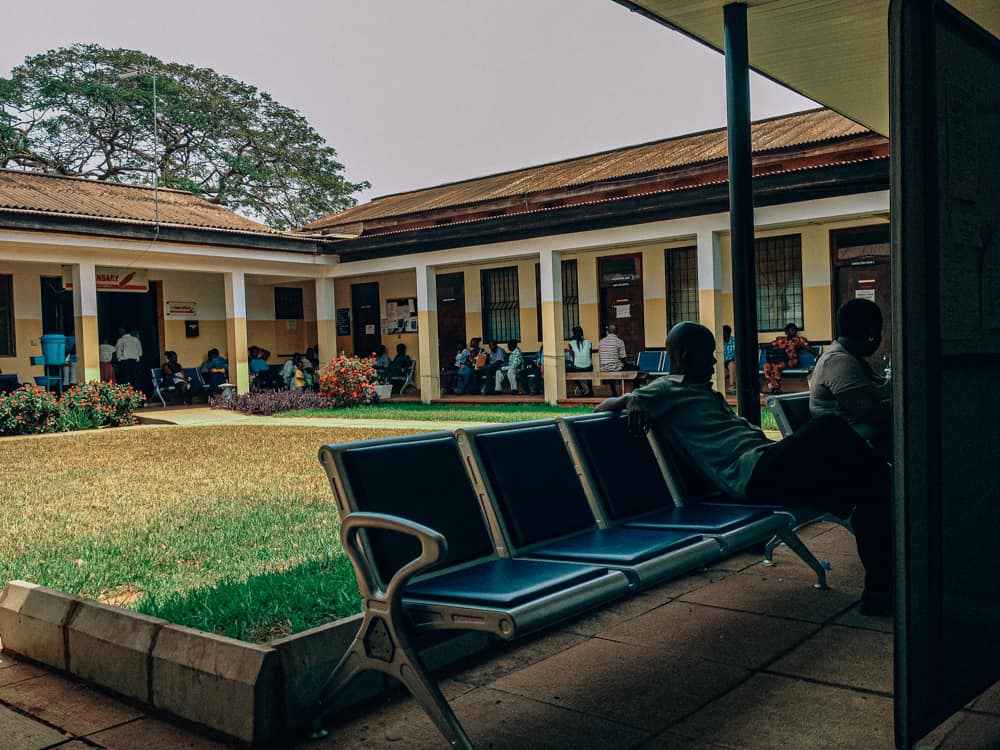
- You will see Ghanaians all over wearing colourful clothes, called Kente Cloth . This is linked closely to the Ashanti Empire and is of great pride to Ghanaians. You can find local seamstresses at markets who will delight in creating you a tailored outfit using Kente Cloth.
- Children from the Ashanti and Fante tribes are often given names based on the day of the week they was born. For example, Adowa, which means Monday. This can be either their first or middle name.
- Soccer (football) is the most popular sport and pastime in Ghana. Any group of locals will welcome you to play – after all, football is a universal language!

- Most Ghanaians will fiercely support a European football team (Manchester United is particularly popular) and on game days, dozens of people will gather around the screens all over.
- There are more than 16 nature protection areas including Mole National Park in the north and Kakum National Park in the south. In these parks, there are more than 40 species of large mammals, nearly 200 species of birds and over 1,000 butterfly species.
- In the east of Ghana is Lake Volta, which is the world’s largest man-made lake, extending over 320 sq miles. It’s so big, it can be seen from space!
Ghana Travel Guide
Getting there.
The main point of entry to Ghana is the Kotoka International Airport in Accra. This is where all international flights arrive.
Plenty of airlines fly to Accra, including Virgin and British Airways direct from the UK, and American Airlines and United from the US (from New York and Washington DC).
Other airlines flying into Accra include Air France, TAP Air Portugal, KLM, Lufthansa, Emirates, Qatar, Turkish Airlines and South Africa Airways.
Visa requirements
Many countries require a visa for Ghana, which has to obtained at an embassy before arriving in Accra. There are numerous African nations exempt from visas, make sure to check before arriving.
If you do require a visa, for example UK citizens, make sure to apply and begin the process well in advance of your arrival date. Make sure to check the Ghana High Commission website for the UK .
Medical requirements
All visitors to Ghana are required to have proof of a Yellow Fever vaccination. Proof is normally in the form of a small yellow book, given by the nurse who gave you the jab.
No other vaccinations are required for arrival into Ghana, but it is recommended to have had the following vaccinations:
- Diphtheria, Polio and Tetanus (DPT)
- Meningitis A,C,W,Y
- Typhoid Fever
- Hepatitis A and B
- Cholera (taken as an oral sachet)
The final two, rabies and cholera, are less taken by travellers to Ghana but I highly recommend both, especially if you plan to visit more rural areas in Ghana.
All these vaccinations add up, but I highly encourage you to take these precautions before arriving.
The main healthcare challenge to be aware of in Ghana is malaria. The disease is still prevalent in Ghana, and malaria-carrying mosquitoes are everywhere. I strongly recommend taking an anti-malarial tablet for the duration of your time in Ghana, which you can arrange in your home country before arriving.
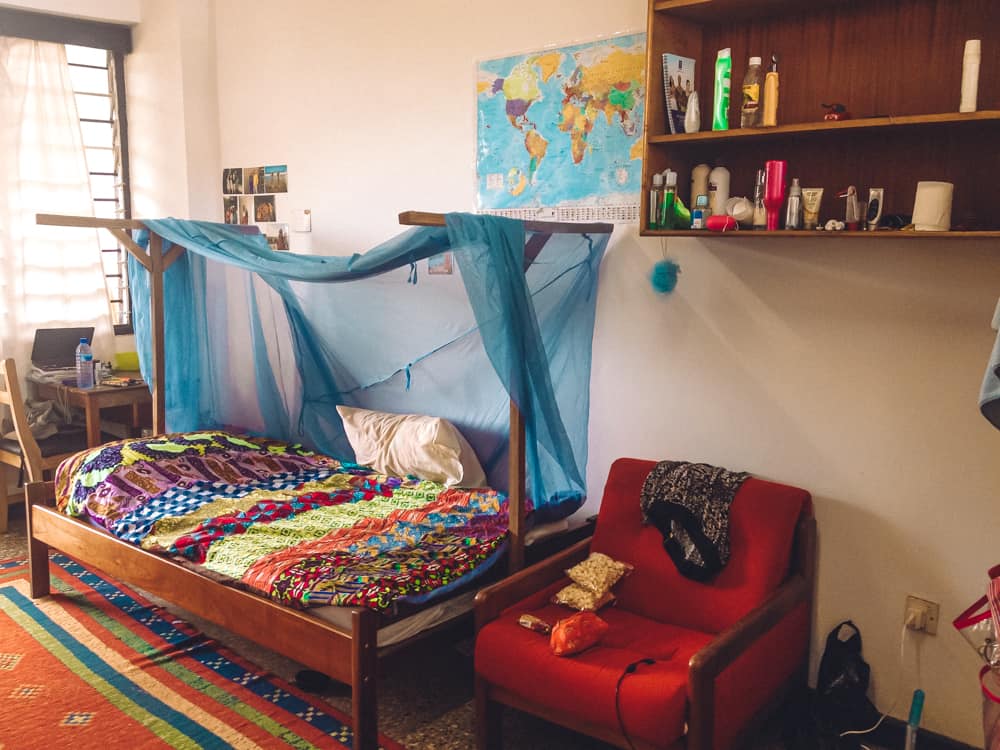
There are a couple of main choices for an anti-malarial drug. Doxycycline and Larium are the cheapest and most readily available, but both can have some extreme side effects. Malarone (proguanil and atovaquone) is more expensive, but there are far fewer side effects. I recommend Malarone but ensure to speak to a healthcare professional.
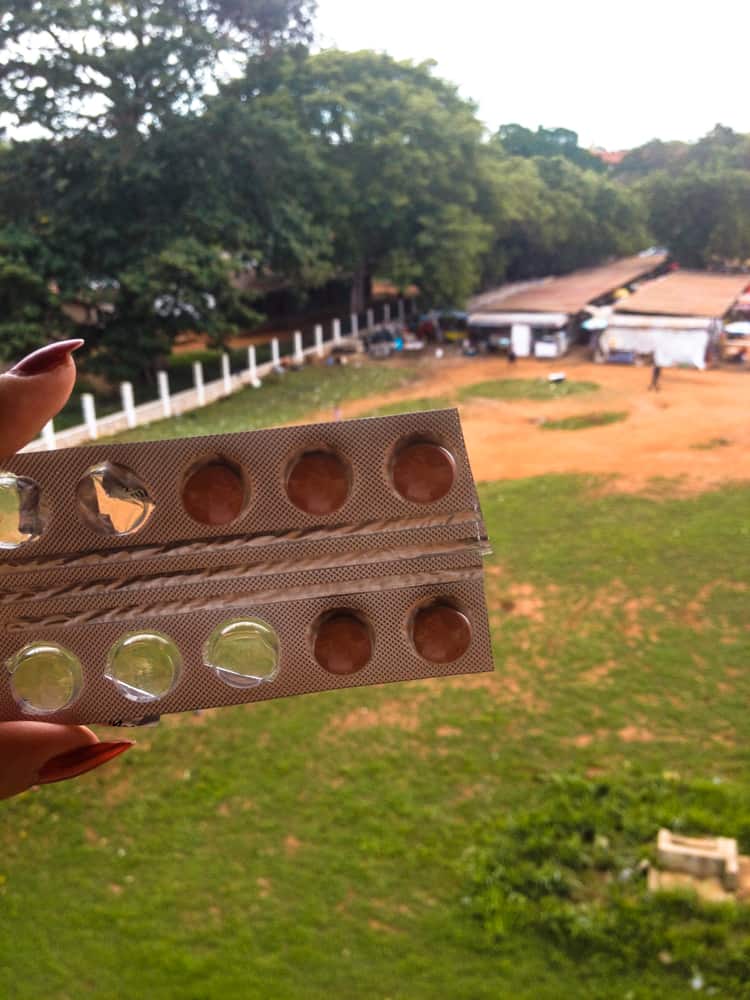
Ensure to use a high percentage DEET based product on your skin, especially at dusk and in the evening. I also recommend sleeping under a net, unless you are in an air-conditioned upscale hotel room. I also used a fabric spray to deter mosquitoes that I used on my net regularly.
Although Ghanaians do tend to get malaria quite often and can be quite casual about it, for tourists it can be quite extreme to our more sensitive immune systems.
Getting around
Flights: There are a handful of internal flight companies in Ghana, primarily connecting Accra with Tamale in the north, Kumasi in the centre, Tema to the east and Takoradi to the west. Although quick, I wouldn’t necessarily advise taking these flights as they aren’t cheap and remove the adventure aspect.
Trains: The railway system in Ghana has typically been quite limited but routes are improving slowly in the south of the country. The trains currently in operation are unlikely to suit traveller itineraries, and are more aimed at commuters.
Buses: This is the main way to do long distance journeys in Ghana. They are generally safe and clean. and often are air-conditioned too.
The main company is STC, which has scheduled bus services throughout Ghana – and air-conditioning onboard. Always try and buy tickets in advance, as often seats sell out along popular routes.
Another bus company is VIP which also has modern, air-conditioned buses but tend to wait to fill up, before departing.
Both these companies have safety records and run from bus station to bus station. There are other bus companies around, with more dubious safety records and older, less well-maintained buses. Other bus companies may allow you to flag them down to alight on route.
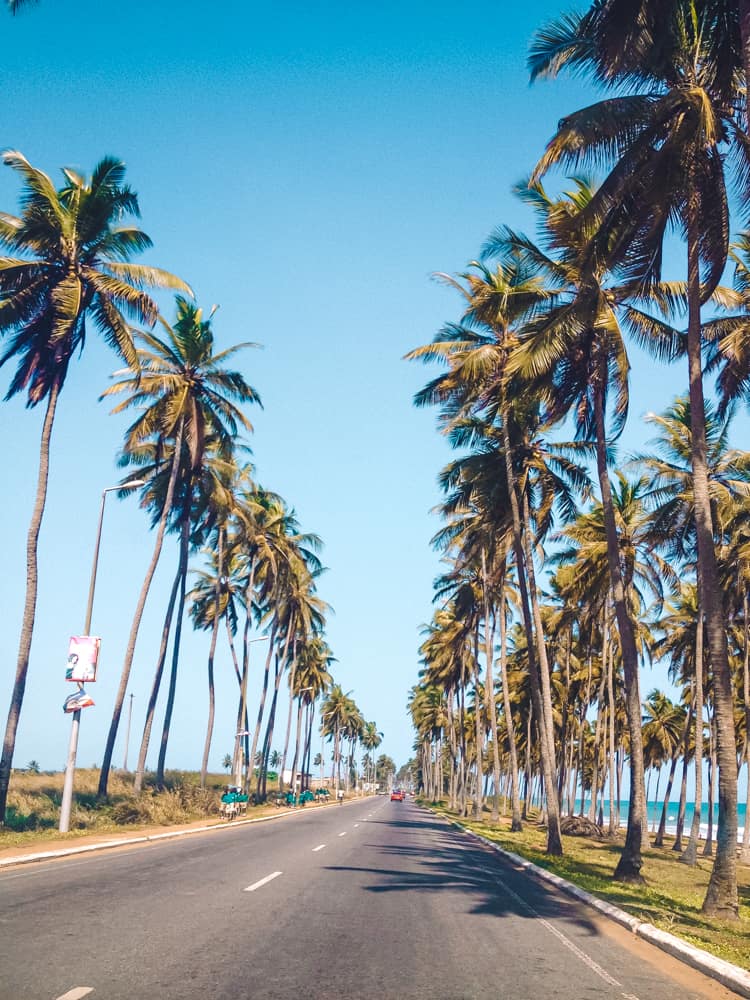
Tro-tros: These are the iconic form of transport in Ghana, despite their total lack of safety. These are old minibuses, often a bare shell with various car parts taped on. People are crammed onto these and you could be sat between all kinds of people and animals – which can make for a very sweaty and smelly journey. Tro-tros ply every road in Ghana, making them very convenient and a crucial mode of transport all across the country. Although they are dirty and uncomfortable, they are a true way to be a part of Ghanaian life and I recommend you use them.
You can join them along the road. There will be a ‘tro tro mate’ hanging out the side of the bus shouting the destination and who takes your cedi from you. Alternatively, you can take a tro-tro from a bus station where you might get to pick your seats, but you have to wait for the bus to fill before it departs. Sometimes this can take a few hours if it’s a less regular route.
Interestingly, fares are regulated by the government so you shouldn’t be overcharged. Fares are low. As mentioned, tro-tros aren’t the safest form of transport. If you are very concerned about the driving or the bus itself, then try and disembark when you can and either take another tro-tro or hail a taxi.
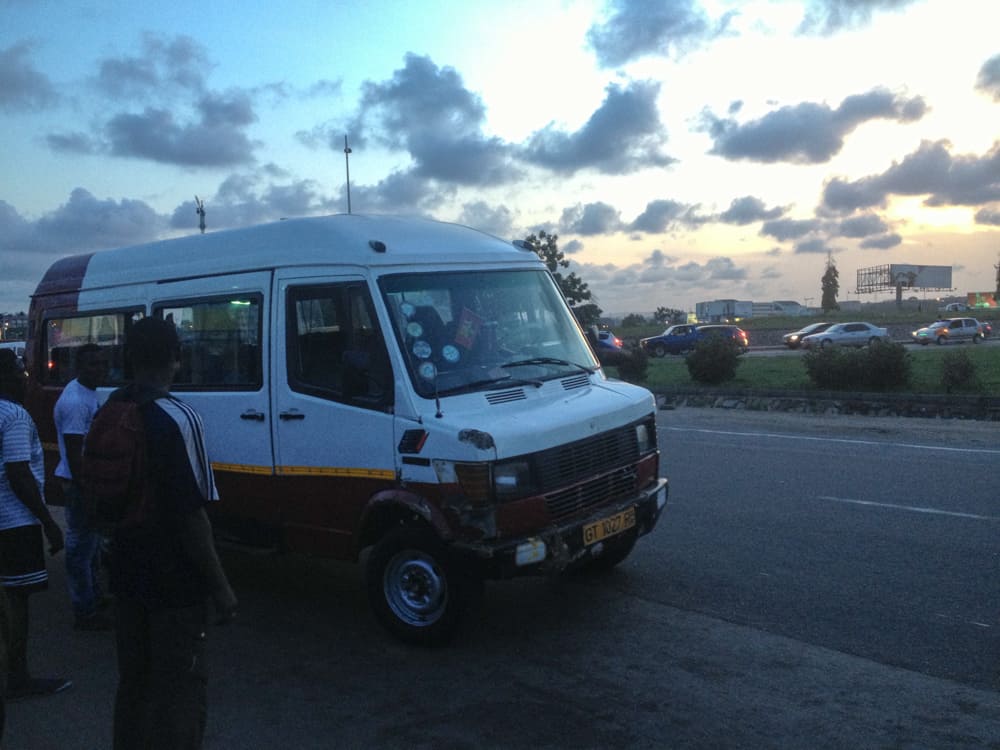
Taxis: The other major form of transport, particularly around urban areas such as Accra, Kumasi and Takoradi is taxi. These are easily identifiable by the orange corners.
You can flag these down on the road, or find parked taxis. Always negotiate and confirm the fare before you start driving – most taxis don’t have a metered system. You can expect taxi drivers to offer you as a tourist quite a high price, but do not be afraid to negotiate on this. If you’re unsure of what the rate should approximately be, then ask a local at a hotel or in a shop.
Another option are shared taxis, which look the same, but drive to a fixed destination which is indicated with a sign. This can be a very cost-effective way to travel from A to B, especially on a more popular route. However, like tro-tros, you will have to wait for these to fill before they depart. As there are only 4 seats normally, this shouldn’t take too long.
Finally Uber is popular in Ghana, having arrived in the country in 2016. This excellent guide here covers everything you need to know about taking Ubers in Ghana.
Climate in Ghana
Oooh, it’s hot! Ghana is located in a subtropical zone, with temperatures over 30°C all year long. The rainy season is typically May to September, and temperatures drop slightly during these months.
Tamale and the wider northern Ghana region is hotter and more arid, with temperatures typically in excess of 35°C.
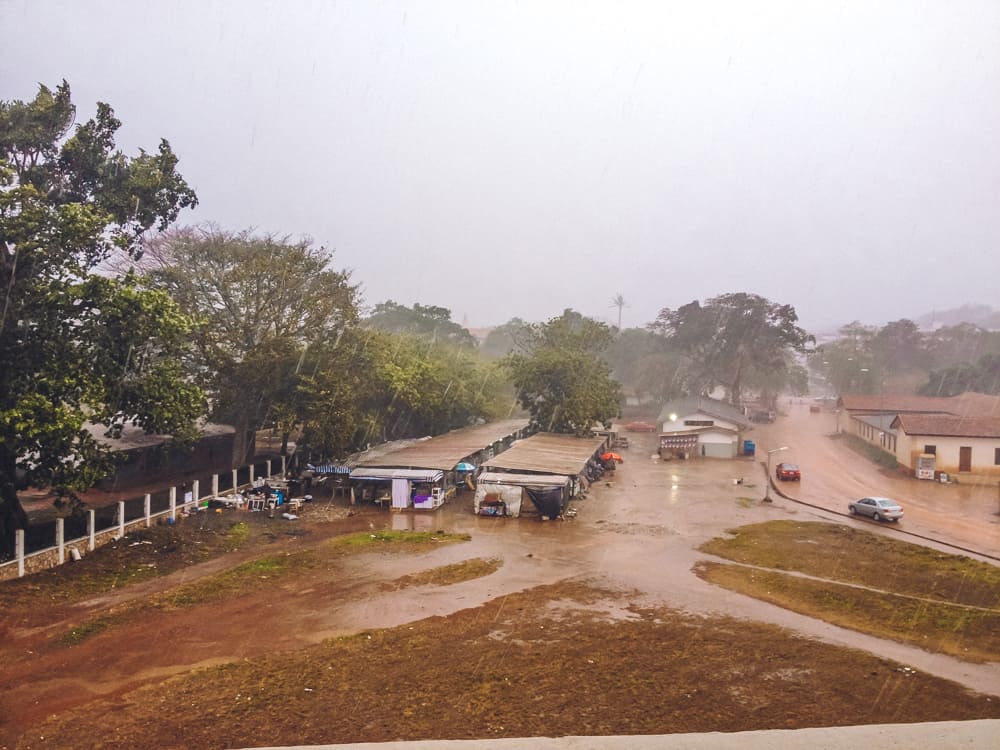
Wifi and Local SIM cards
Wifi is plentiful in Ghana, and phone sims are cheap.
I would recommend getting a local SIM, even if your trip is just a week. The main providers in Ghana are Vodafone and MTN, and you pick up a sim for either at the airport or at the Accra Mall. You can then top-up your SIM easily at local stores across the country. After paying for the data you require, you receive a small piece of card where you can scratch off the silver bit for a code to enter in your phone.
More recently, the local app ExpressPay has created an easy way to top up mobile phone SIMs or make money transfers to trusted contacts.
Ghanaians love WhatsApp, and like other countries in Africa, you may find it easier to communicate with your favoured taxis drivers by WhatsApp, for example.
Money in Ghana
As mentioned, the main currency is the Ghanaian Cedi, and the smaller pesewa. I would always advise to keep some Cedi on you, and do not expect places to take cards.
ATMs are found across the country, with the main banks being Stanbic Bank and GTBank.
Water and Electricity
Tap water is not safe for drinking, and I recommend using a bottle or sachet of water for cleaning teeth too.
Plastic sachets of water are sold all over Ghana and are very cheap – just 10 pesewas each (one tenth of a cedi). They contain purified water, but some brands are better than others. Try and buy water sachets that are Ice Cool, Ice Pack or Everpure brands. You’ll know by taste if any of the water is of poor quality – it will either taste muddy or metallic. Don’t drink!
In terms of running water and sanitation in Ghana, most of Accra will have access to clean water. Water is generally provided in huge water tanks, which can tend to run out. When the supply becomes limited, you will need to use buckets for showering and washing clothes. If you’re staying in upscale hotels, this isn’t likely to be an issue and they will have backup reserves.
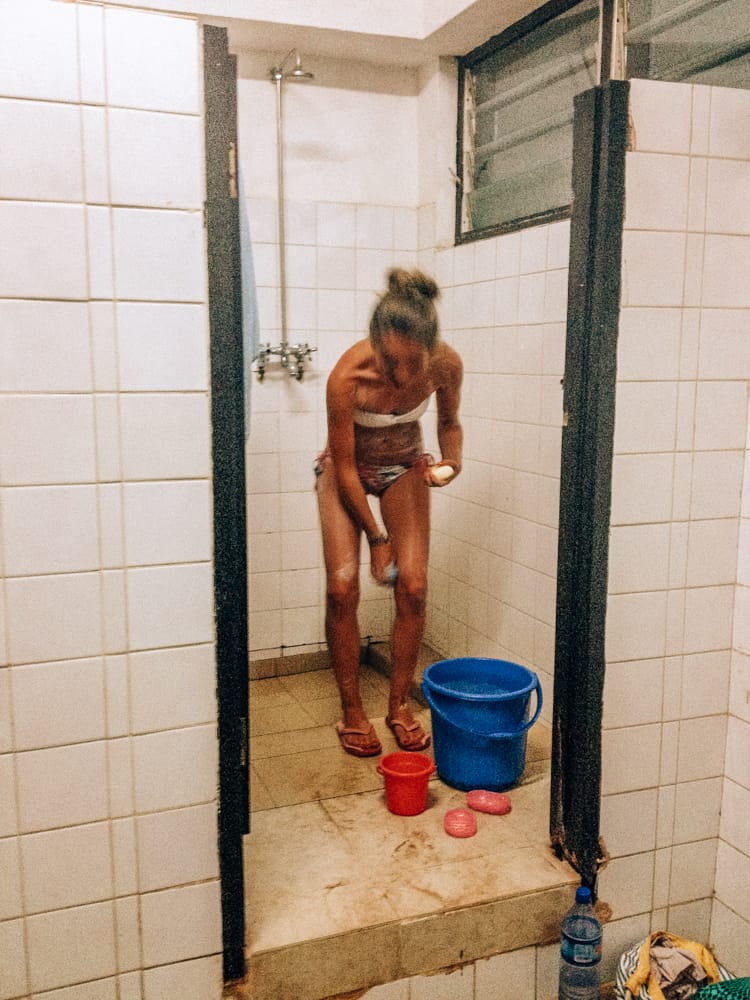
Western style toilets are available all over Ghana, but poorer or more rural areas may have more hole-in-the-ground style toilets. Just keep tissues and hand sanitiser on you, just in case!

For electricity, load shedding is common across the whole of Ghana. Accra, as the capital is more likely to have 24 hours of electricity in a day, but all other places will experience a degree of load shedding.
Larger hotels and companies are very likely to have their generators to ensure guaranteed electricity. If the power cuts, they don’t always kick in instantly and there may be periods where you’re sweltering indoors. I used to find I would be drenched in sweat in the middle of the night when the power turned off the ceiling fan and I was under my mosquito net. Sometimes I’d get up and poor a bucket of cool water over my body and hair in order to cool down and get back to sleep.
Local language to learn in Ghana
‘Obruni!’ – this is probably the first word to learn. It means foreigner in the Akan language. It’s not an offensive term at all, and is often said with affection too. Do not be surprised if people shout ‘Obruni!’ at you in markets! And so you are aware, ‘Bibinii’ means black person.

‘Chale’ – means friend or mate. It’s common for a Ghanaian to greet you with ‘Chale!’
‘ Abeg ‘ – means please, in pidgin English. It’s common to hear this in the markets when negotiating a price.
‘ Akwaaba’ – means welcome. You may hear this all over as people welcome you the country more broadly, or arriving in a village. I heard this a lot less after a few months, so I felt like I successfully looked like I had (somewhat) assimilated myself into Ghanaian life!
‘Medaase’ – thank you!
‘Chop’ – casually refers to roadside or stall food, or ‘to chop’ is to eat.
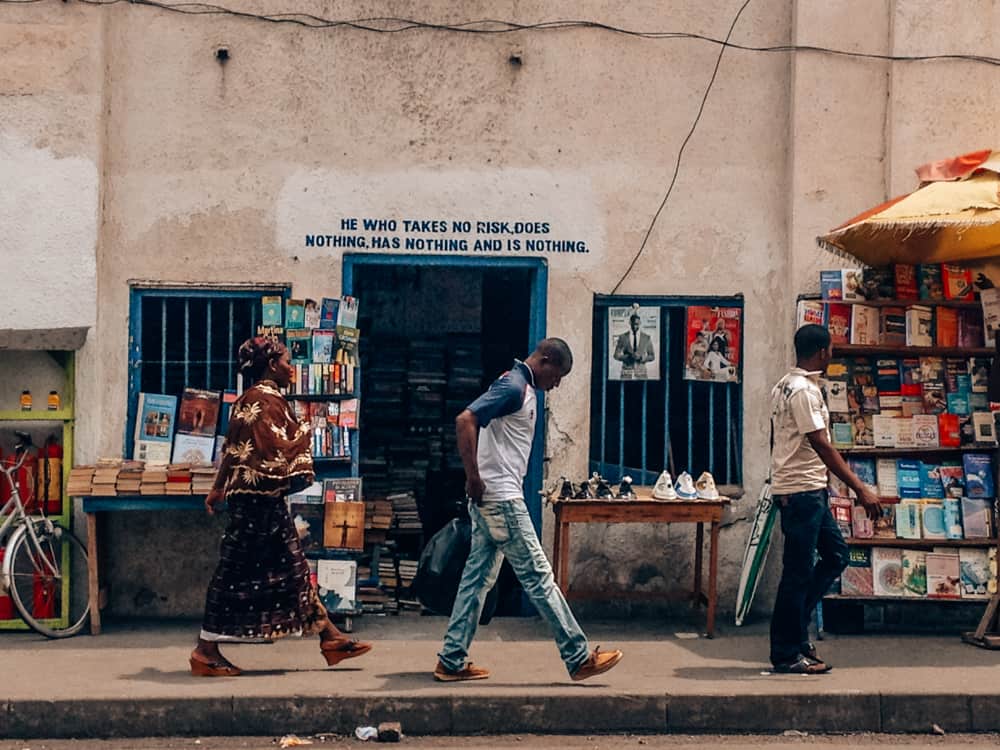
Customs and Etiquette
The left hand is considered rude and offensive, never pass anything with your left hand. Always use your right hand to pass or receive anything.
Pointing at people is considered rude, as is the thumbs up sign.
A common way to greet friends, or Ghanaians you’ve got to know is to do a handshake, followed with a hand twist and a click of the finger. Don’t worry, you’ll learn it in no time.
Ghana time is a real thing. It’s not uncommon for Ghanaians to be late by even as much as 2 hours. They even tease each other about how bad Ghanaians’ timeliness can be!
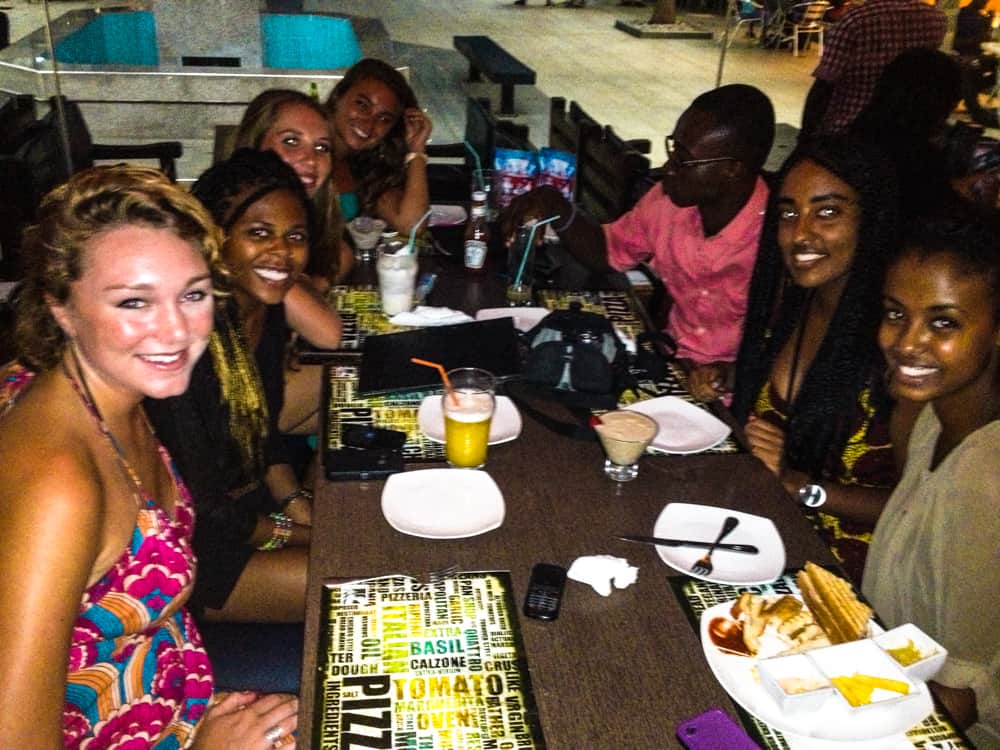
Food in Ghana
Although Western food is often available, Ghanaian cuisine is delicious and essential to try on any length trip to Ghana.
The main staple foods are cassava and plantain, particularly around Accra and southern half of the country. In the north, the staple food is millet.
Throughout the country, yam, maize and beans are also cooked with. In Accra and the coastal regions in Ghana, tilapia is the main fish. You’ll see it being cooked on the streets and it is served up with many types of dishes.
Ghanaian food can be quite spicy. If you don’t like hot food, then say no to ‘ shito sauce ‘, an extra spicy sauce dolloped over your meal.
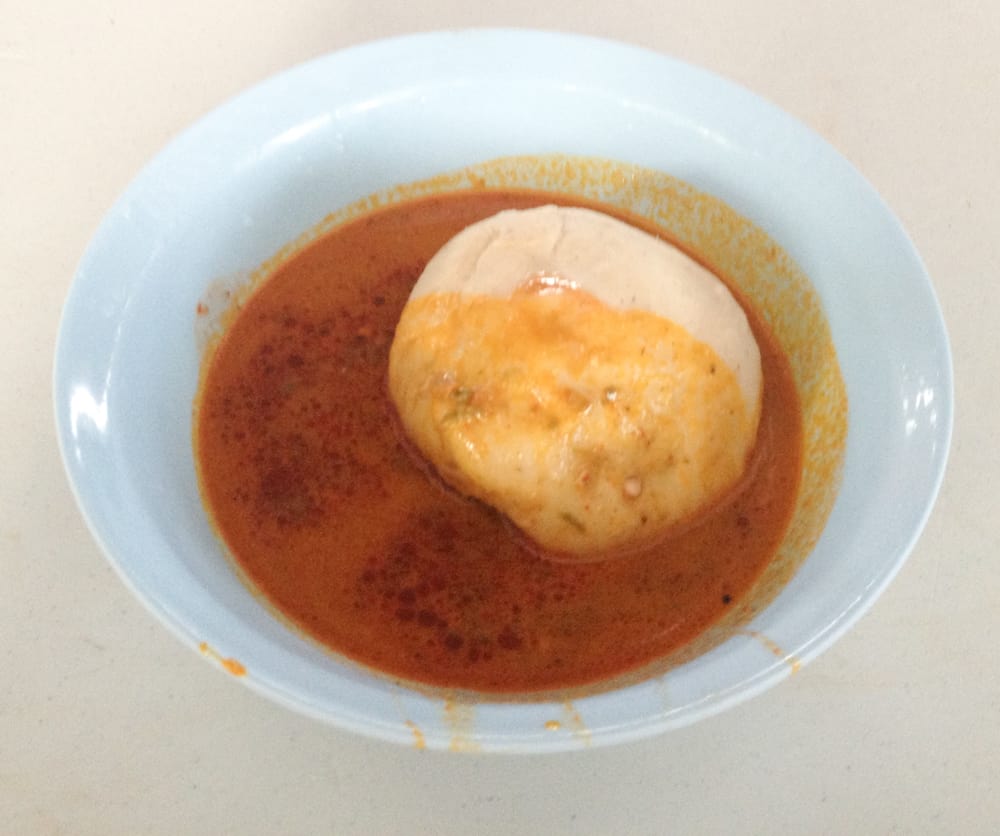
Some key Ghanaian dishes to try:
Jollof Rice – one of the most famous dishes! And the centre of many contests between Nigeria and Ghana as to who makes the best Jollof Rice! It is a tomato and rice dish, served with a fried chicken and shito sauce.
Waakye (pronounced Wacchee) – this is another rice dish served with beans. It isn’t often too spicy and is delicious with fried plantain, and other sides such as spaghetti, hard boiled egg and fish or chicken.
Banku – this is a dumpling made of a mix of fermented corn and cassava dough. You will often find this dish with stew and tilapia.
Fufu – similar to banku, this is boiled pounded cassava and plantain. It is often served in soups, like a groundnut soup. You take a piece of fufu dough, dip it in the accompanying stew and eat it! It’s delicious. This was my favourite dish in Ghana, I loved it. Sometimes goat is added to the soup, but you often say no goat pieces if you prefer.

Chichinga – mmm, Ghanaian kebab! This is a popular street food and is normally a mixture of chopped vegetables and a protein source, such as chicken or goat. This normally isn’t too spicy, although they do sometimes put a spicier paste called suya on it before grilling. Just ask them to stop before they cover the kebab.
Red-red – this vegetarian dish is mild bean stew and is delicious with a side of fried plantain. This is great for those who don’t like spice.
Plantain – similar to a banana, but larger and definitely more delicious. Plantain can be boiled, fried or cooked. It can be enjoyed as crunchy crisps too, easily purchased at local stalls.
Bofrot – these are delicious fried balls, that are doughnut-like in texture and taste. I was hooked as soon as I discovered them.

So there’s my Ghana travel guide, covering all of the essential things to know before visiting Ghana. As you can see, it’s a safe, peaceful and vibrant country, with some of the friendliest people on the planet.
Whether you’re visiting Ghana for a holiday, a volunteer trip, to visit family or to study abroad, I hope this guide is useful. I’m more than happy to answer any questions you might have on Ghana and put you in touch with locals I know, for example local tour guides.
Please make sure to also check out my detailed post on all of the best things to see and do in Ghana, covering all the key regions.
If you’re planning to visit any other African nations, then make sure to check out my other guides, covering Zambia and Zimbabwe , Botswana , South Africa and Morocco .
If you’ve enjoyed this guide to Ghana, then please do share using the below links!
Wanna see more? Check my Instagram here , my Facebook here or my Twitter here !
Disclaimer: My time in Ghana was entirely paid for by myself. There was no involvement from the tourism board or any local companies. This is an independent guide.
Enjoyed my Ghana Travel Guide? Pin it!
You may also enjoy:
Best day trips from cape town, …, cape town guide: the best things …, fes travel guide: best things to …, how to visit the penguin beach ….
Amazing! Really makes me feel like going back home.
Great Blog.Thanks for Sharing.
I really enjoyed this blog piece. ‘Nice one!
Ghana looks amazing! I definitely feel like it’s a country that isn’t seen on a lot of travel blogs – so it was very cool to read about it!
Thank You!!
You nailed it, Claire! I really enjoyed reading this piece on Ghana. And it’s so nice to see your genuine appreciation and love for my homeland.
Hi you make it sound fantastic place to visit , going there myself with my Ghana and girlfriend ..Thanks for the wonderful insight of the country .Best wishes on your travels . Steve .
Leave a Reply Cancel reply
Your email address will not be published. Required fields are marked *
Let’s connect
Security Alert May 17, 2024
Worldwide caution, update may 10, 2024, information for u.s. citizens in the middle east.
- Travel Advisories |
- Contact Us |
- MyTravelGov |
Find U.S. Embassies & Consulates
Travel.state.gov, congressional liaison, special issuance agency, u.s. passports, international travel, intercountry adoption, international parental child abduction, records and authentications, popular links, travel advisories, mytravelgov, stay connected, legal resources, legal information, info for u.s. law enforcement, replace or certify documents.
Share this page:
Ghana Travel Advisory
Travel advisory november 20, 2023, ghana - level 2: exercise increased caution.
Updated to reflect threats against LGBTQI+ travelers.
Exercise increased caution in Ghana due to crime and violence against members of the LGBTQI+ community . Some areas have increased risk. Read the entire Travel Advisory.
Exercise increased caution in:
- Parts of the Bono East, Bono, Savannah, Northern, North East, and Upper East regions due to civil unrest.
Country summary: Violent crimes, such as carjacking and street mugging, do occur. These crimes often happen at night and in isolated locations. Exercise increased caution specifically due to crime:
- In urban areas and crowded markets
- When traveling by private or public transportation after dark as criminal elements may use blockades to slow down and restrict movement of vehicles
- In areas near the northern border in the Upper East and Upper West regions
The U.S. government has limited ability to provide emergency services to U.S. citizens. Local police may lack the resources to respond effectively to more serious crimes.
LGBTQI+ Travelers: Ghanaian law contains prohibitions on “unlawful carnal knowledge” – generally interpreted as any kind of sexual intimacy – between persons of the same sex. Punishments can include fines and/or incarceration. Anti-LGBTQI+ rhetoric and violence have increased in recent years. Members of the LGBTQI+ community have reported safety incidents that include targeted assault, rape, mob attacks, and harassment due to their identity.
Read the country information page for additional information on travel to Ghana.
If you decide to travel to Ghana:
- See our LGBTQI+ Travel Information page and section 6 of our Human Rights Report for further details.
- Enroll in the Smart Traveler Enrollment Program ( STEP ) to receive alerts and make it easier to locate you in an emergency.
- Follow the Department of State on Facebook and Twitter .
- Review the Country Security Report for Ghana.
- Prepare a contingency plan for emergency situations. Review the Traveler’s Checklist .
- Visit the CDC page for the latest Travel Health Information related to your travel.
Areas Near the Northern Border in the Upper East and Upper West Regions – Level 2: Exercise Increased Caution
U.S. citizens traveling in Ghana should exercise caution while visiting border areas, in particular the northern border, and be sure to read Security Alerts affecting those areas. Due to security concerns over criminal activity in remote areas, travel of U.S. government personnel to the northern and northwestern border is currently limited.
Visit our website for Travel to High-Risk Areas .
Travel Advisory Levels
Assistance for u.s. citizens, search for travel advisories, external link.
You are about to leave travel.state.gov for an external website that is not maintained by the U.S. Department of State.
Links to external websites are provided as a convenience and should not be construed as an endorsement by the U.S. Department of State of the views or products contained therein. If you wish to remain on travel.state.gov, click the "cancel" message.
You are about to visit:
Ghana Travel Guide: Essential Facts and Information
:max_bytes(150000):strip_icc():format(webp)/DSC00412-5b73daf7c9e77c0057ca2198.jpg)
As one of the most popular tourist destinations in West Africa, Ghana has something for every kind of traveler . From its cosmopolitan capital to historic cities steeped in Ashanti culture, the country is known for its urban flair; while its parks and game reserves are filled with exotic wildlife. On the coast, secluded beaches are interspersed with forts that serve as a reminder of Ghana's tragic role in the slave trade. This is one of the region's wealthiest, most stable countries - making it a great starting point for first-time visitors to Africa .
Ghana is located on the shores of the Gulf of Guinea in West Africa . It shares land borders with Burkina Faso, Côte d'Ivoire and Togo.
With a total area of 92,098 miles/ 238,533 square kilometers, Ghana is similar in size to the United Kingdom.
Capital City:
The capital of Ghana is Accra, located on the country's southern shore.
Population:
According to July 2016 estimates by the CIA World Factbook, Ghana has a population of almost 27 million people. Akan is the largest ethnic group, accounting for approximately half of the total population.
English is the official language and the lingua franca in Ghana. However, around 80 indigenous languages are also spoken - of these, Akan dialects like Ashanti and Fante are the most widely used.
Christianity is the most popular religion in Ghana, accounting for 71% of the population. Just over 17% of Ghanaians identify as Muslim.
Ghana's currency is the Ghanaian cedi. For accurate exchange rates, use this currency converter .
Thanks to its equatorial location, Ghana has a tropical climate with hot weather all year round. Although temperatures vary slightly according to geographical region, you can expect daily averages of around 85°F/ 30°C. The wet season generally lasts from May to September (although in the south of the country there are two rainy seasons - March to June, and September to November).
When to Go:
The best time to visit Ghana is during the dry season (October to April), when precipitation is limited and humidity is at its lowest. This is also the time of year with the least mosquitoes, while unpaved roads are usually in good condition.
Key Attractions:
Cape Coast and Elmina Castles
The whitewashed castles at Cape Coast and Elmina are the most impressive of Ghana's remaining slave forts. Built in the 17th and 15th centuries respectively, both served as holding stations for African slaves en route to Europe and the Americas. Today, castle tours and museum exhibits offer an emotional insight into one of the darkest periods of human history.
With a reputation as one of the safest capital cities in West Africa, Accra is a bustling metropolis known as much for its traditional culture as it is for its music scene, restaurants and nightclubs. Top attractions include colorful Makola Market (a great place to shop for souvenirs); and the National Museum, home of Ashanti, Ghanaian and slave trade artifacts.
Kakum National Park
Located in southern Ghana, Kakum National Park offers visitors the chance to explore a tract of unspoiled tropical rainforest filled with fascinating animals - including rare forest elephants and buffalo. Over 250 different bird species have been recorded within the park, and there's an excellent canopy walkway measuring some 1150 feet/350 meters.
Mole National Park
As Ghana's largest national park, Mole is the top safari destination for visiting wildlife lovers. It is home to elephant, buffalo, leopard and the rare roan antelope. If you're lucky, you may spot one of the park's recently re-introduced lions, while the birdlife here is also fantastic. There are options for vehicle and walking safaris under the supervision of a local guide.
Getting There
Located in Accra, Kotoka International Airport (ACC) is Ghana's main gateway for overseas travelers. Major airlines that fly to Kotoka International Airport include Delta Airlines, British Airways, Emirates and South African Airways. Visitors from most countries (including those in North America and Europe) will need a visa to enter the country - check this website or consult with your nearest embassy for further details on requirements and processing times.
Medical Requirements
As well as ensuring that your routine vaccines are up-to-date, you will need to be vaccinated against yellow fever before traveling to Ghana. Anti- malaria prophylactics are strongly recommended, as are vaccines for Hepatitis A and typhoid. Women who are pregnant or trying to conceive should be aware that Zika virus is a risk in Ghana, too. For a full list of medical requirements, check the CDC website .
10 Best Things to Do in Ghana
Gabon Travel Guide: Essential Facts and Information
Senegal Travel Guide: Essential Facts and Information
ghana travel information
10 of the Best Things to Do in Accra, Ghana
Kenya Travel Guide: Essential Facts and Information
Cape Verde: Facts and Information
Nigeria Travel Guide: Essential Facts and Information
Tanzania Travel Guide: Essential Facts and Information
Rwanda Travel Guide: Essential Facts and Information
Zimbabwe Travel Guide: Essential Facts and Information
10 Destinations to Top Your Africa Bucket List
South Africa Guide: Planning Your Trip
The Best Time of Year to Visit Ghana
Djibouti Travel Guide: Essential Facts and Information
Eswatini Travel Guide: Essential Facts and Information
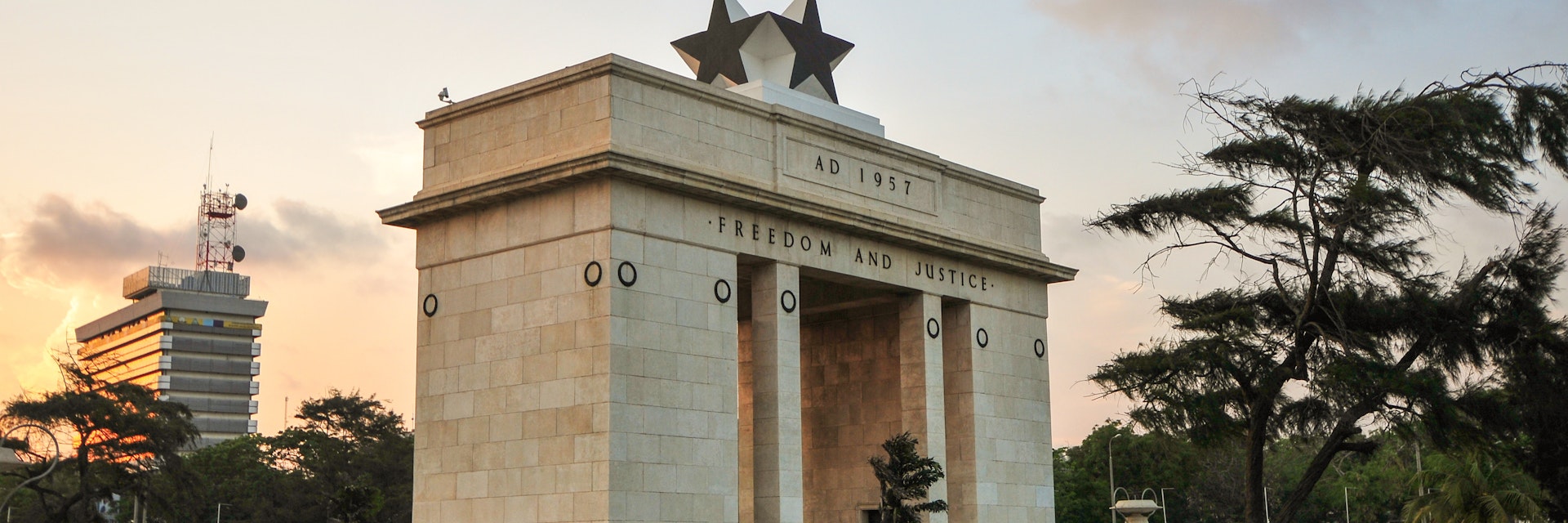
Suffused with the most incredible energy, Ghana is one of Africa's biggest attractions, with welcoming beaches, gorgeous hinterland, diverse wildlife and vibrant cities.
Best Time to Visit
Best places to visit, attractions, must-see attractions.
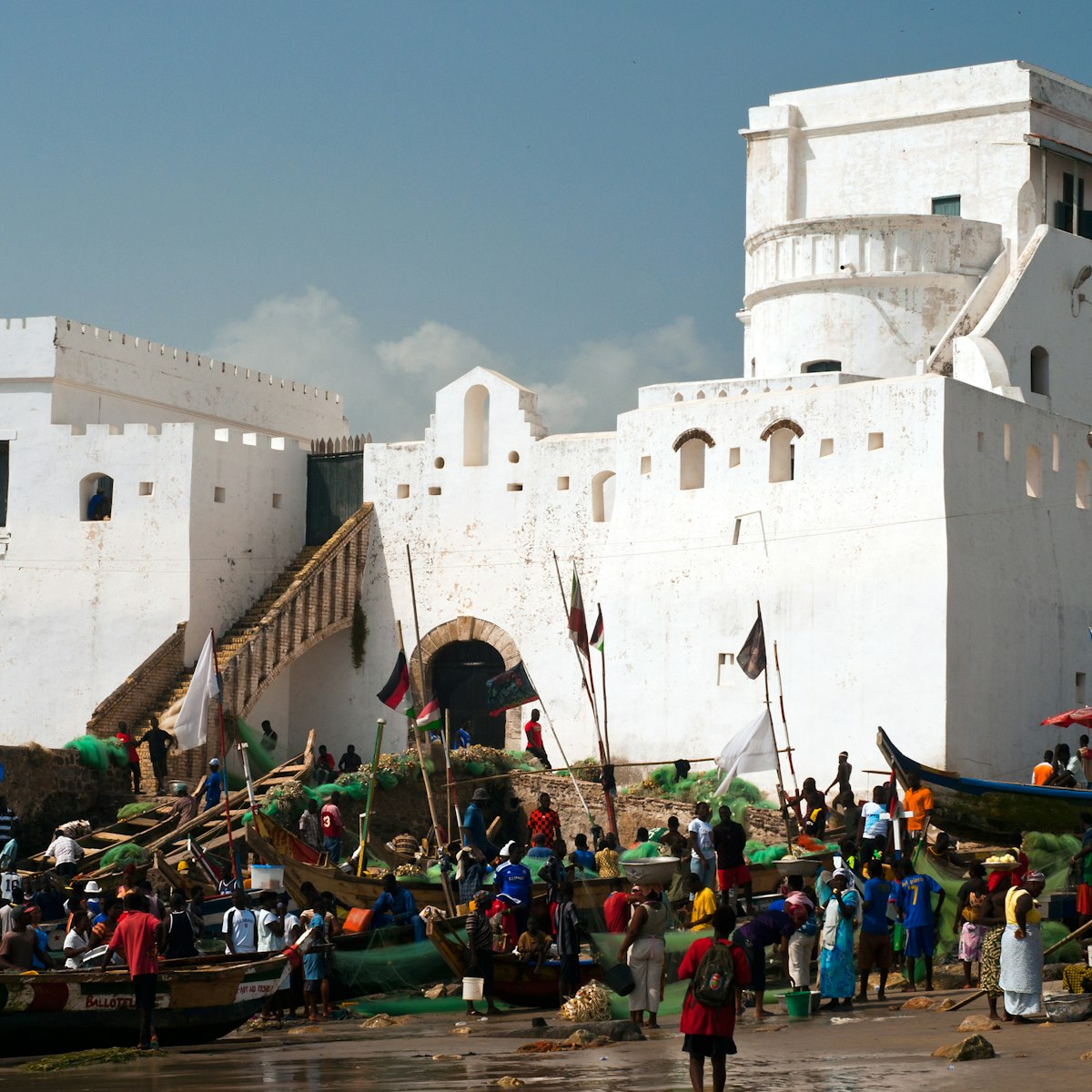
Cape Coast Castle
Cape Coast’s imposing, whitewashed castle commands the heart of town, overlooking the sea. Once one of the world's most important slave-holding sites, it…
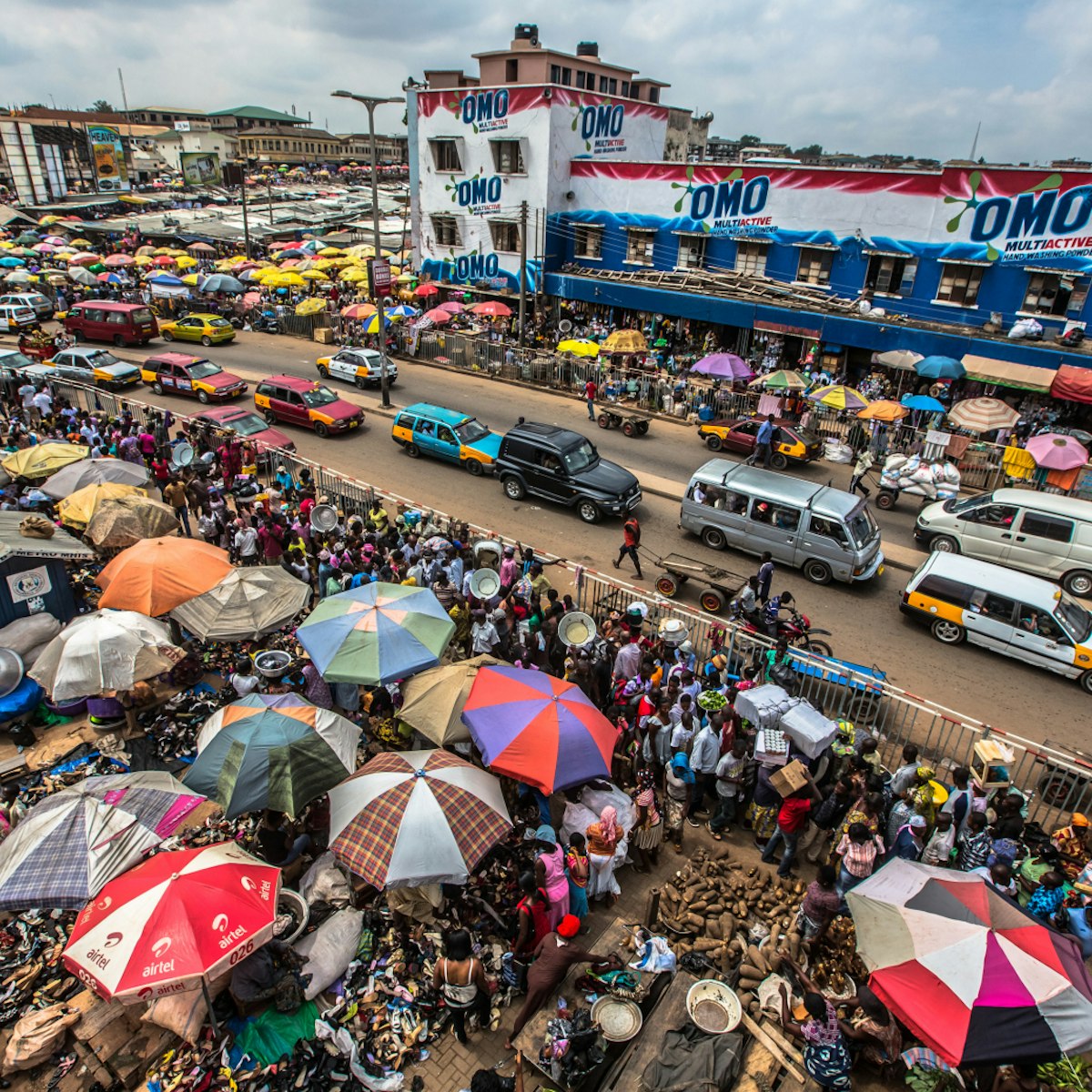
Kejetia Market
From afar, the Kejetia Market looks like an alien mothership landed in the centre of Kumasi. Closer up, the rusting tin roofs of this huge market (often…
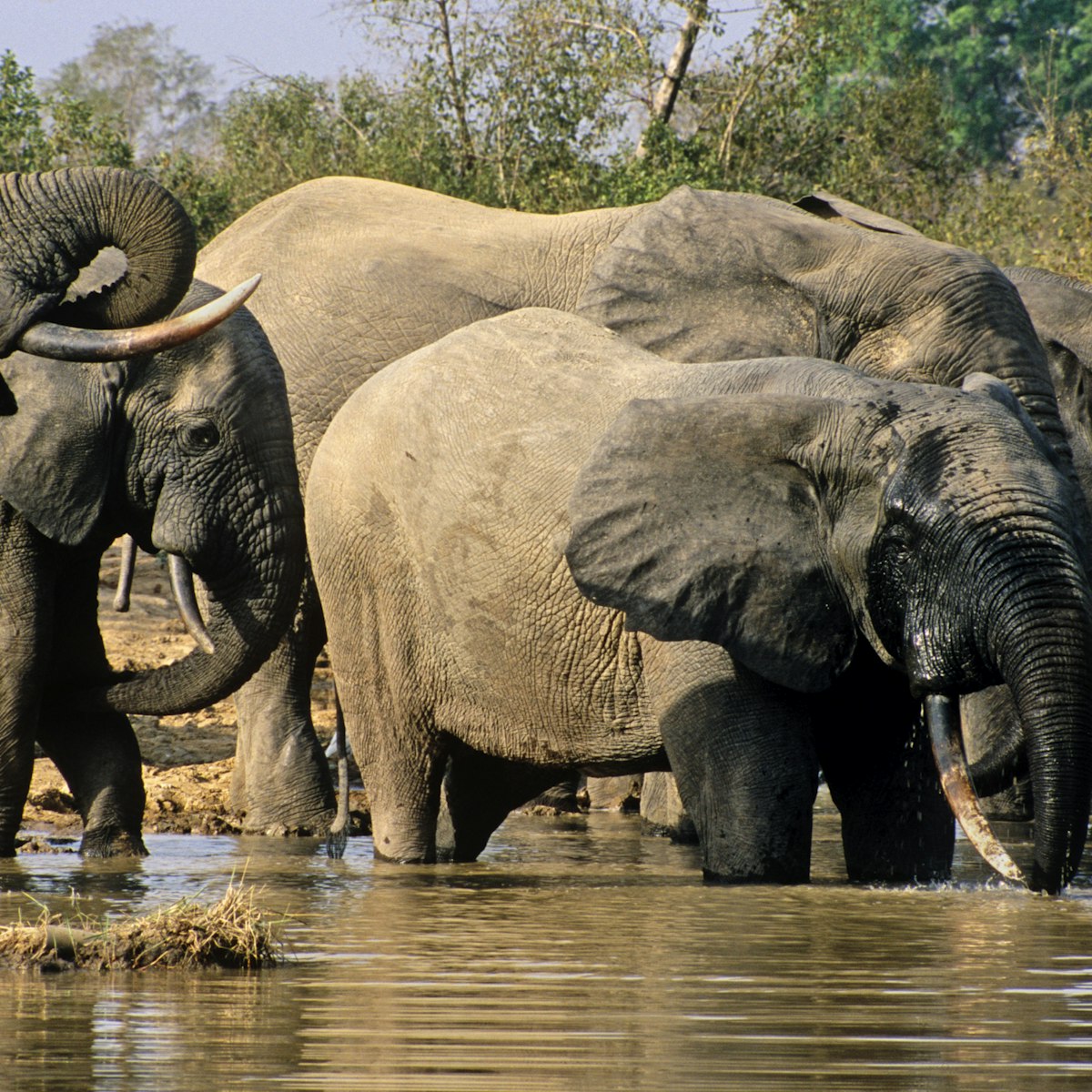
Mole National Park
It's not everywhere you can get up close and personal with bus-sized elephants. Face-to-face encounters with these beasts, plus roving gangs of baboons,…
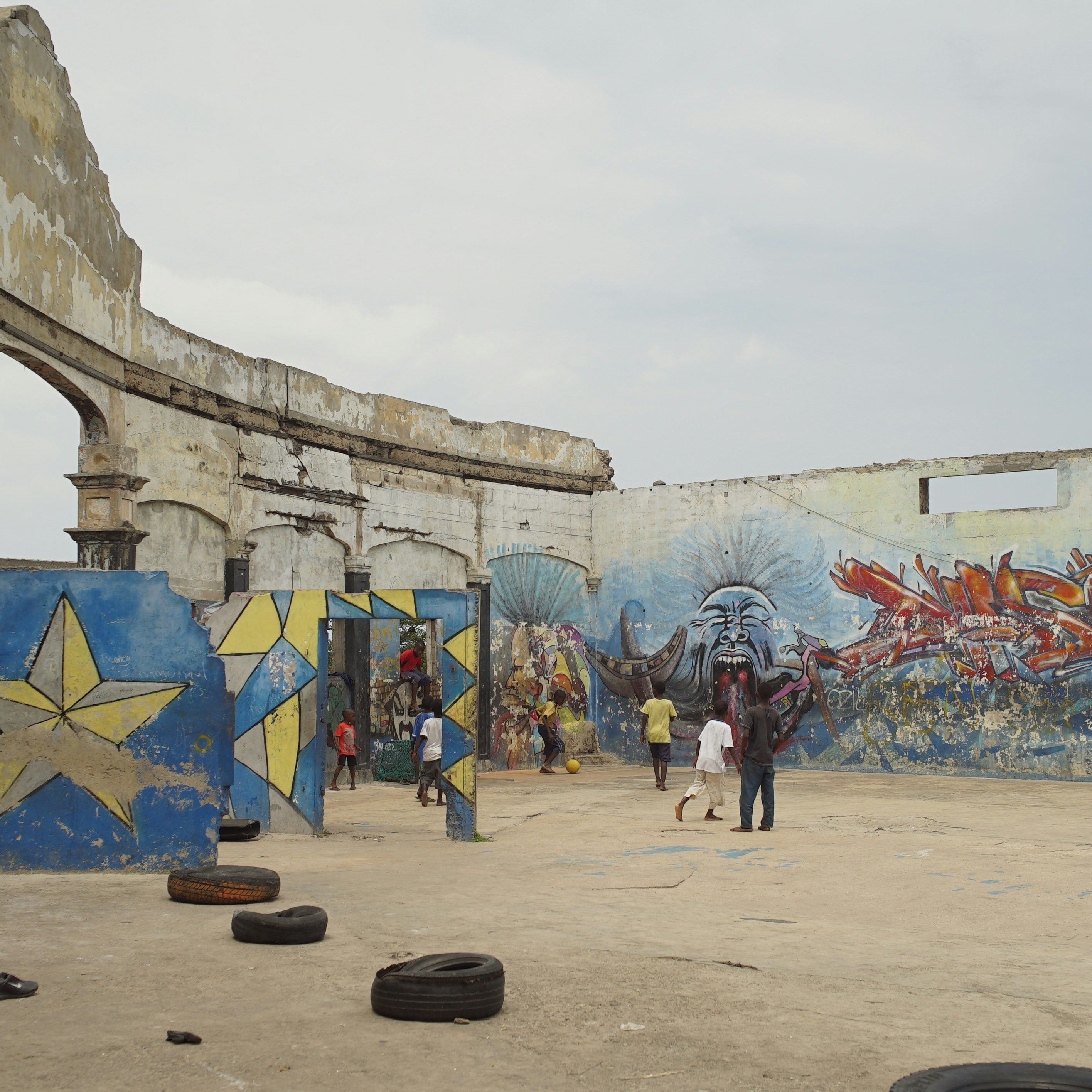
Jamestown originated as a community that emerged around the 17th-century British James Fort, merging with Accra as the city grew. These days, Jamestown is…
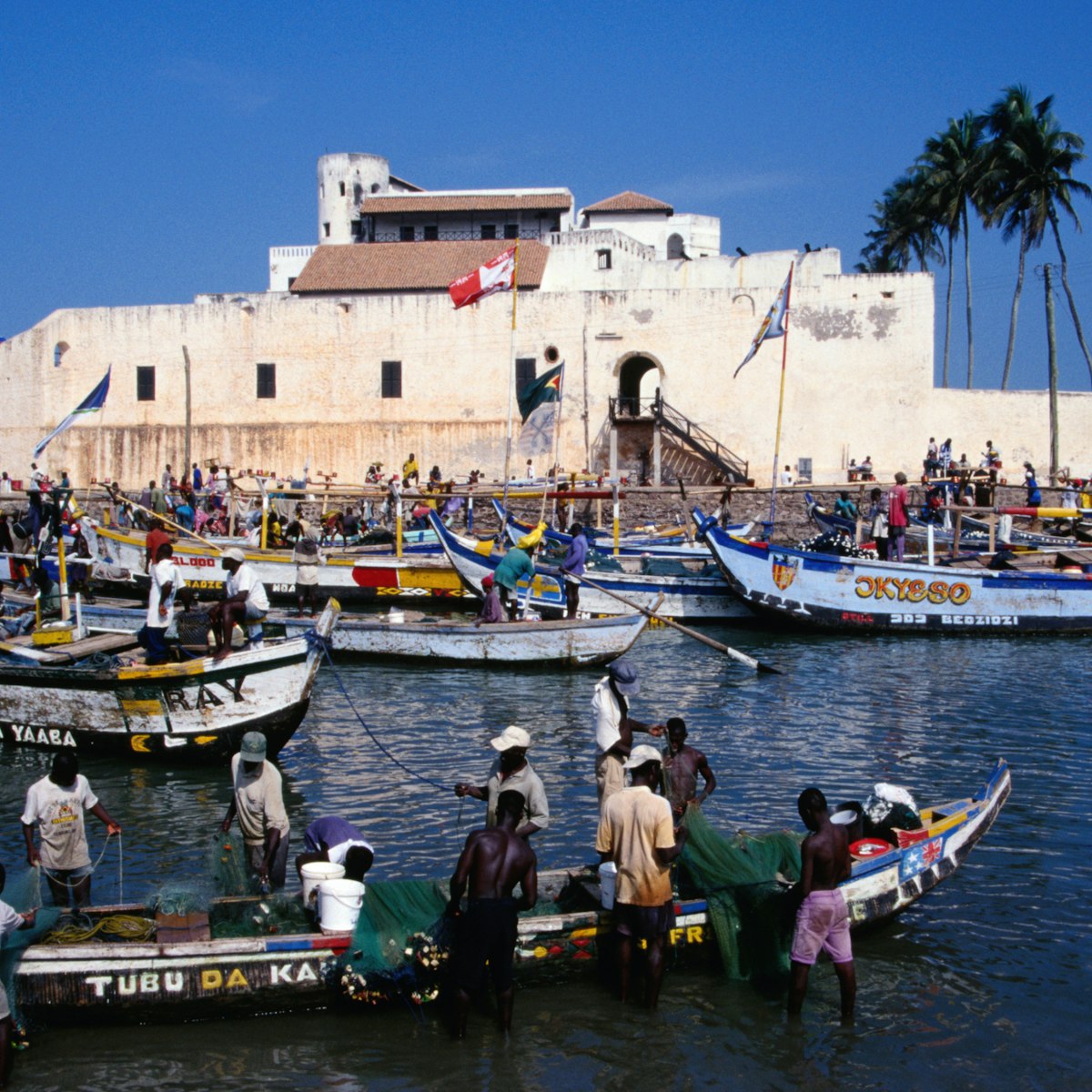
St George's Castle
St George’s Castle, a Unesco heritage site, was built as a trading post by the Portuguese in 1482, and captured by the Dutch in 1637. It was expanded when…
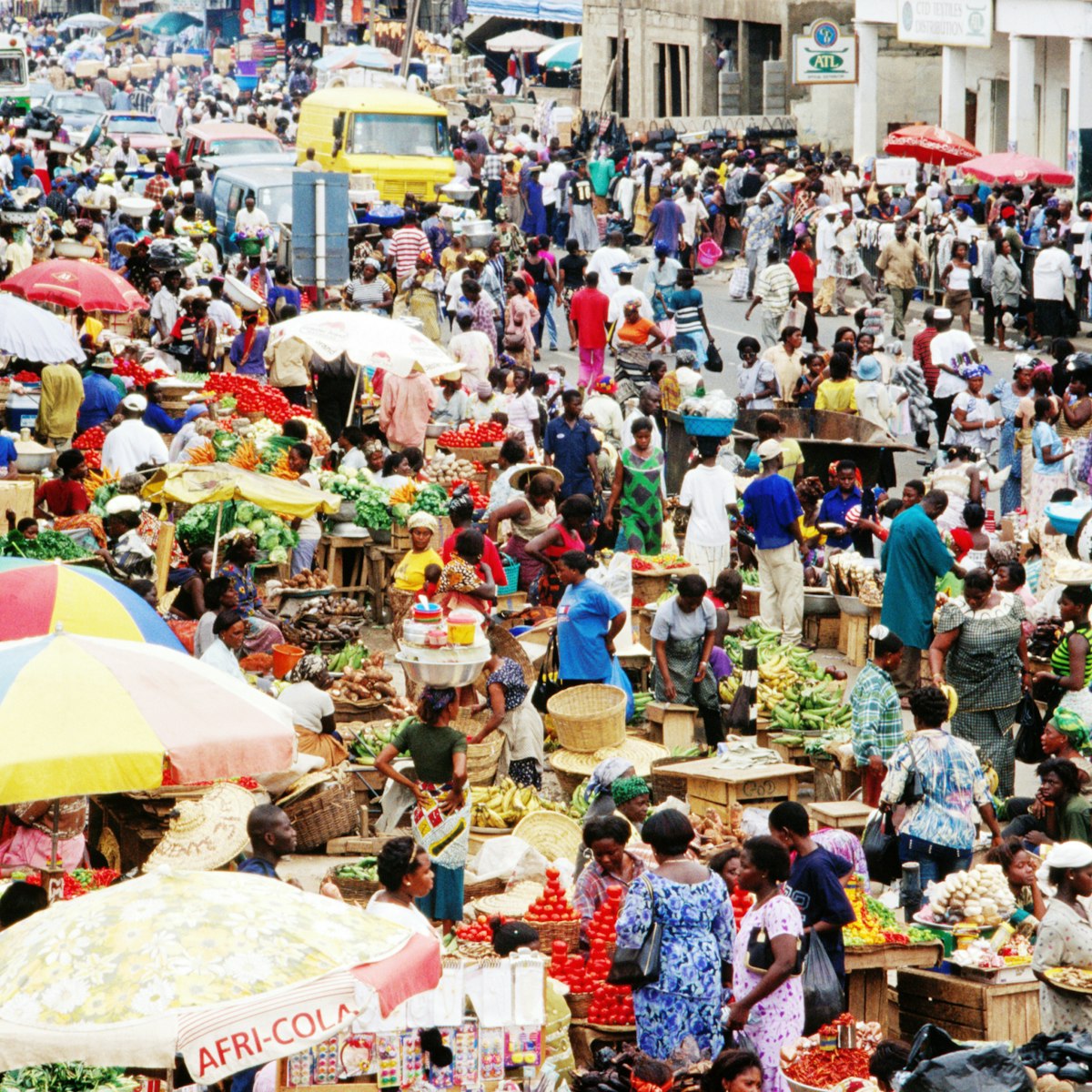
Makola Market
There is no front door or welcoming sign to the Makola Market. Before you know it, you've been sucked in by the human undertow from the usual pavements…
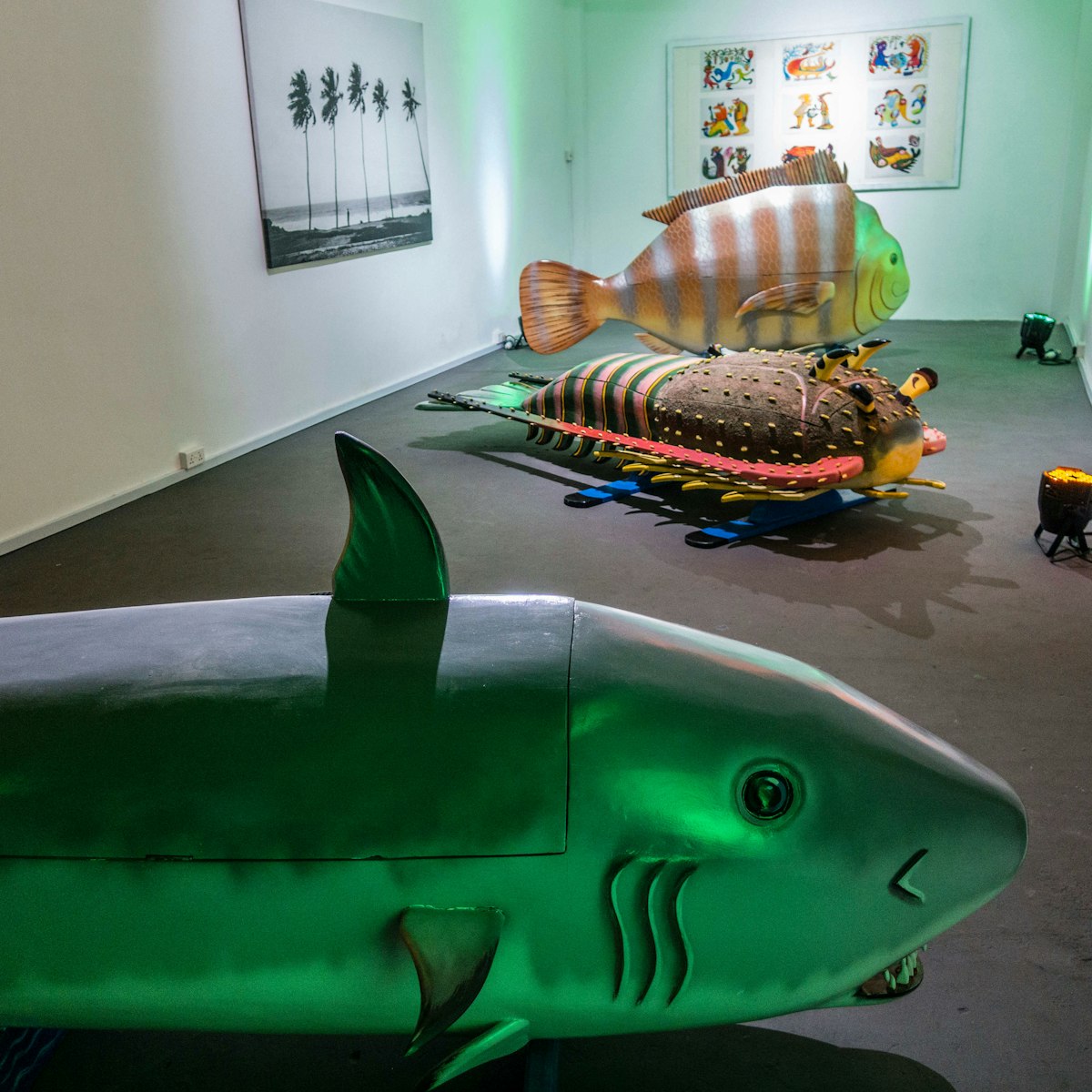
ANO Centre for Cultural Research
This arts institution, which takes its name from the word 'grandmother' in Akan, was founded by Ghanaian art historian, writer and filmmaker Nana…
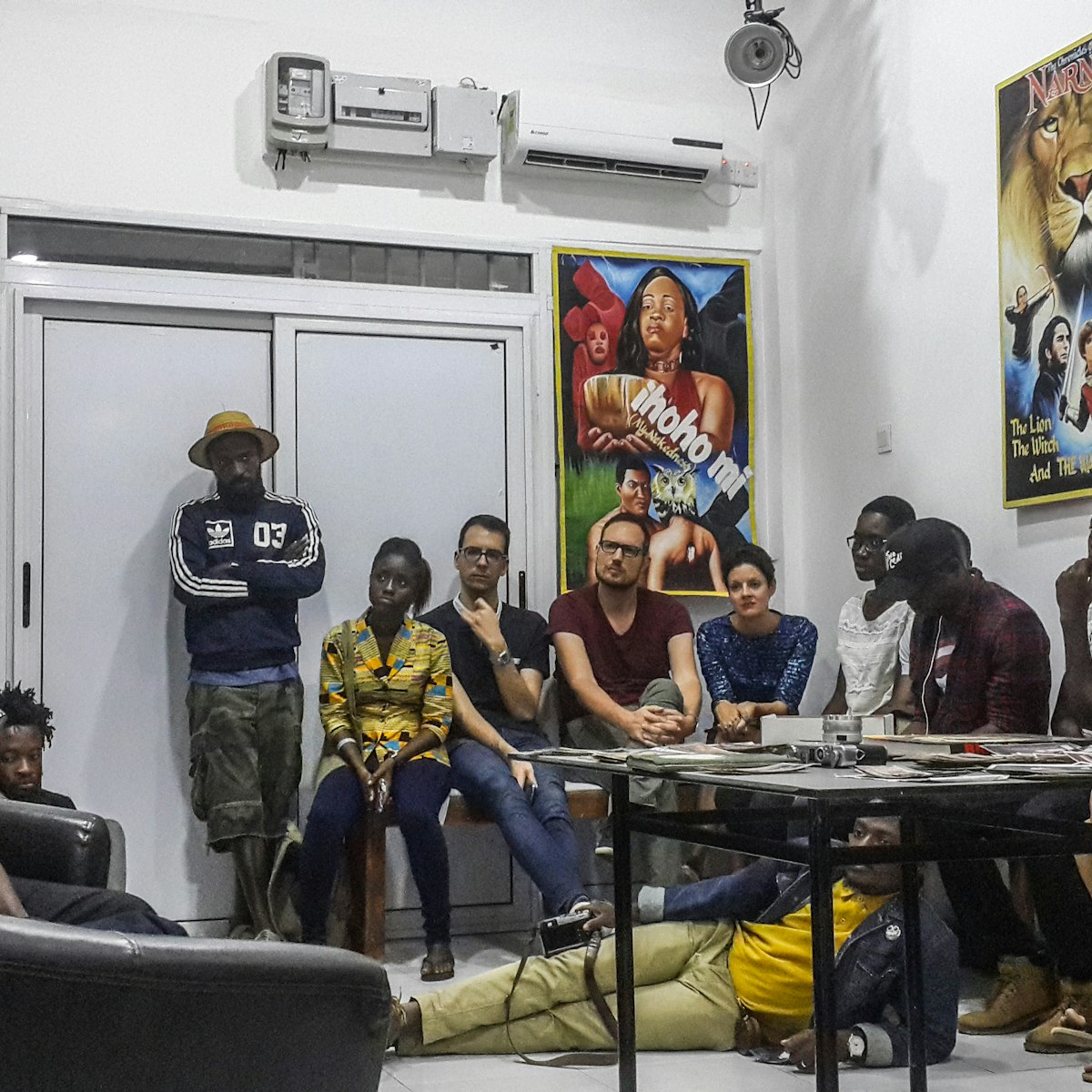
Ghanaian photographer Francis Kokoroko and his friends regularly host cultural events and art talks at this tiny, unbranded studio on the top floor of the…
Top picks from our travel experts
11 of the best things to do in ghana.

Independence Arch
This imposing arch adjacent to Independence Sq is crowned by a large black star, Ghana's national symbol. Note: taking photos is forbidden.
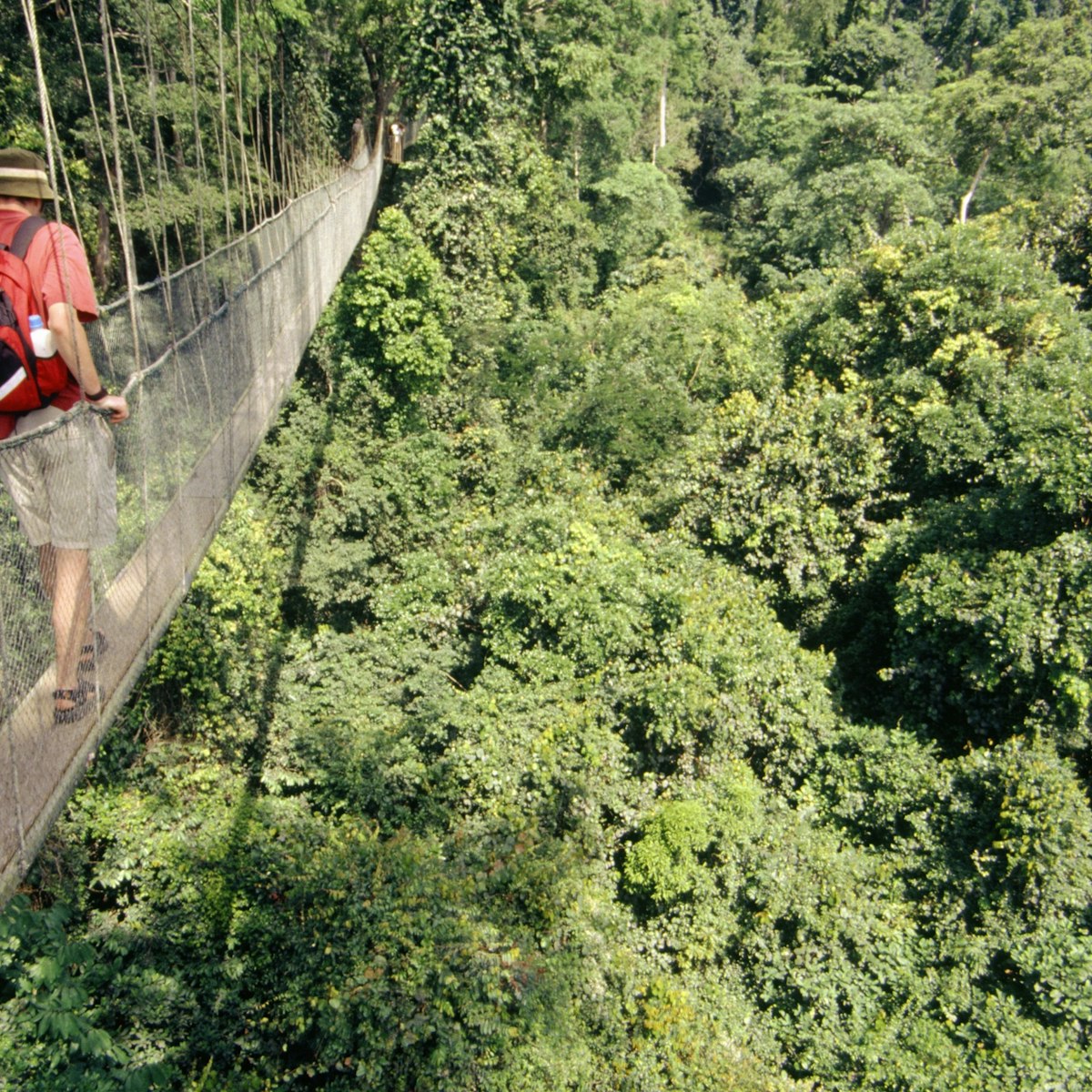
Kakum National Park
Tucked away in this small pocket of rainforest are endangered forest elephants, colobus monkeys, 300 species of bird and a staggering 600 species of…
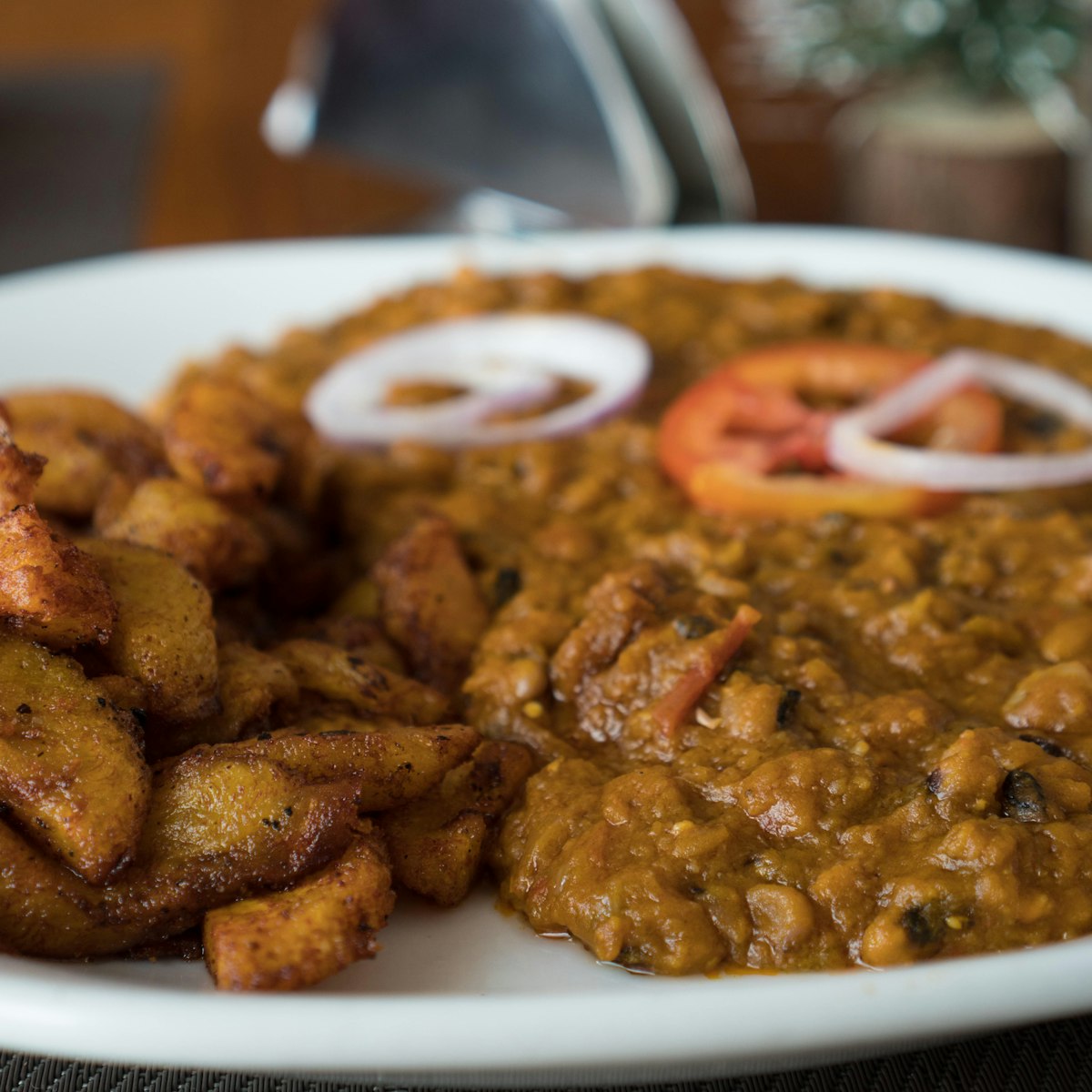
Ever-popular Buka serves some of the best West African food in Accra, in stylish surroundings to boot. Hearty plates of jollof rice, tilapia and groundnut…
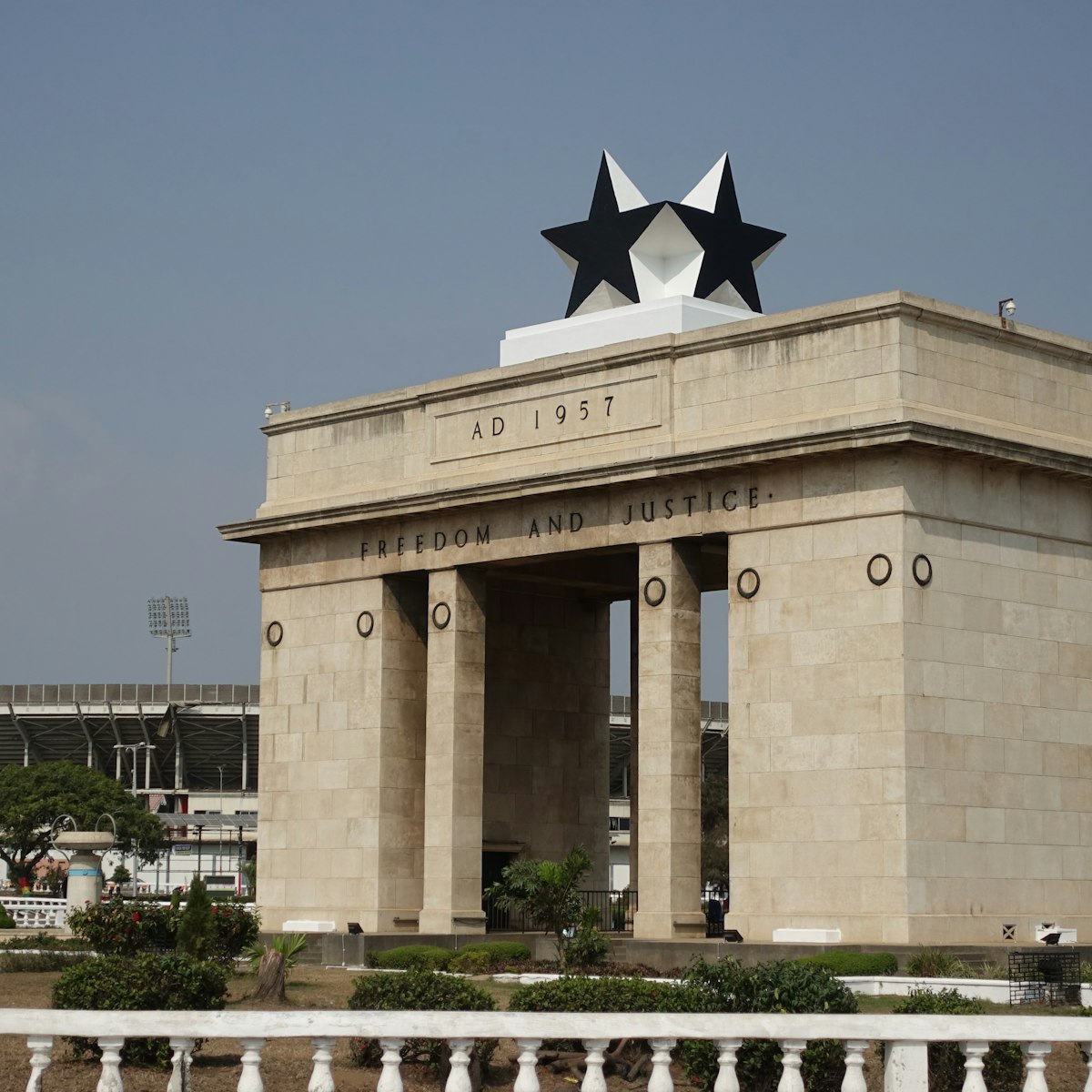
Independence Square
Independence Sq, also known as Black Star Sq, is a vast, empty expanse of concrete overlooked by spectator stands of Stalinesque grace. The square is…
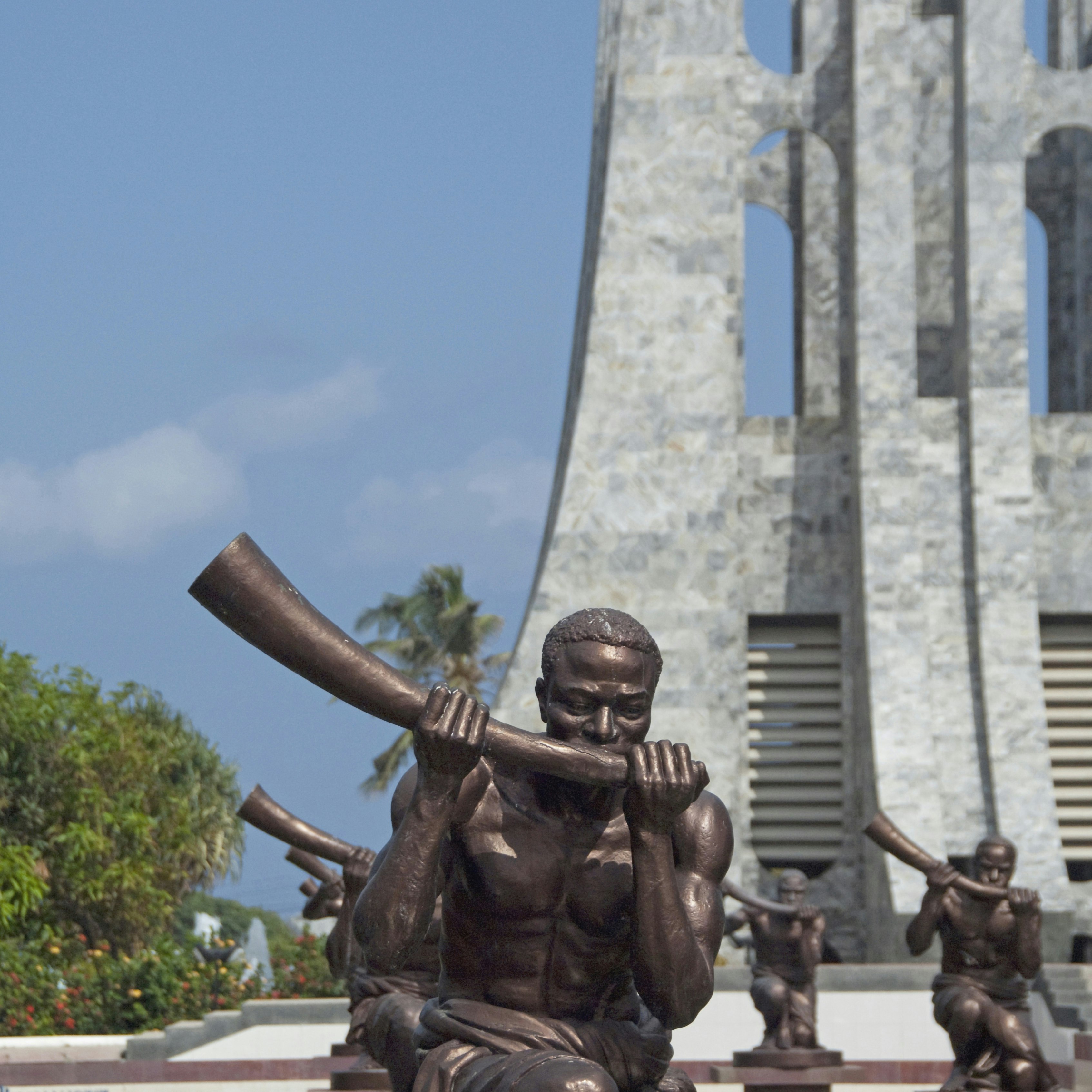
Kwame Nkrumah Park and Mausoleum
This tranquil park is full of bronze statues, fountains and wandering peacocks, with the mausoleum of Kwame Nkrumah, Ghana's first leader, at its heart…

Centre for National Culture
A warren of stalls selling arts and crafts, known simply as the Arts Centre, this is the place to shop in Accra. The level of aggressive hassling may make…
Planning Tools
Expert guidance to help you plan your trip.
Best Things to Do
Be amazed by Ghana's history, nature and culture. Here are the top experiences to seek out in this enchanting West African country.
Things to Know
Whether you're a first-time visitor or returning once again, these tips will help you plan the perfect trip to Ghana.
Transportation
Getting around Ghana can be tricky if you don't have some insider tips to help you along the way. Here's our guide to navigating this stunning country.
Visa Requirements
Before you dive into Ghana's warm tropical waters, you may well need a visa. Here's how you go about getting one.
Money and Costs
The gorgeous Ghanian countryside may look like a million dollars but you don't need to break the bank to vacation there. Here's how to do it on a budget.
Plan with a local
Experience the real Ghana
Let a local expert craft your dream trip.
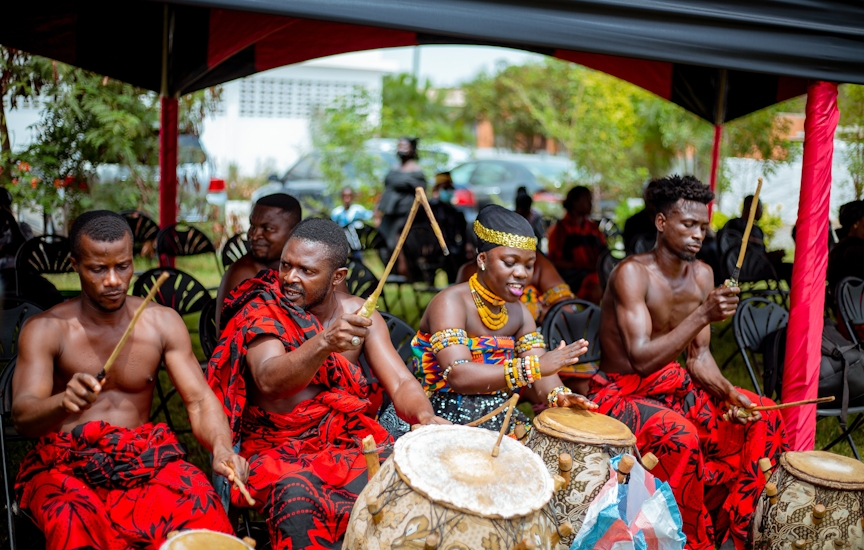
Latest stories from Ghana
Filter by interest:
- All Interests
- Adventure Travel
- Art & Culture
- Beaches, Coasts & Islands
- Food & Drink
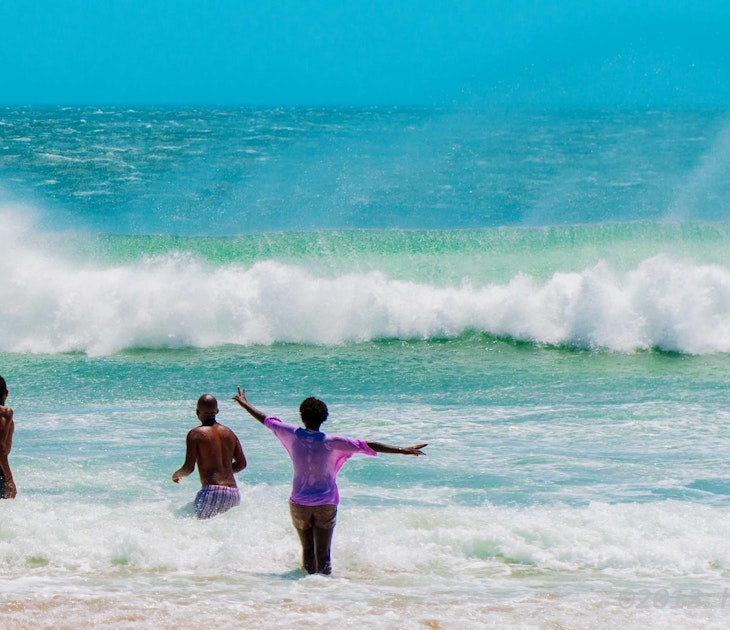
Destination Practicalities
Mar 7, 2024 • 7 min read
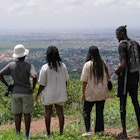
Apr 13, 2023 • 8 min read
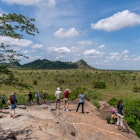
Apr 11, 2023 • 6 min read
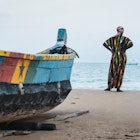
Apr 6, 2023 • 3 min read
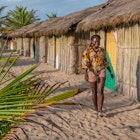
Mar 17, 2023 • 6 min read

Mar 15, 2023 • 9 min read
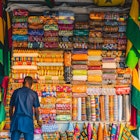
Mar 9, 2023 • 7 min read
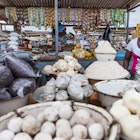
Oct 7, 2022 • 6 min read
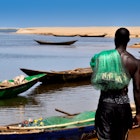
Apr 20, 2022 • 6 min read
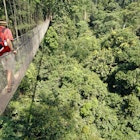
Mar 17, 2022 • 6 min read
in partnership with getyourguide
Book popular activities in Ghana
Ghana and beyond.
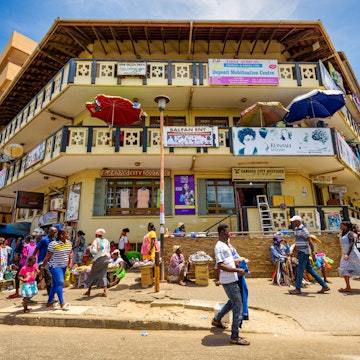
Cookies on GOV.UK
We use some essential cookies to make this website work.
We’d like to set additional cookies to understand how you use GOV.UK, remember your settings and improve government services.
We also use cookies set by other sites to help us deliver content from their services.
You have accepted additional cookies. You can change your cookie settings at any time.
You have rejected additional cookies. You can change your cookie settings at any time.
Register to vote Register by 18 June to vote in the General Election on 4 July.
- Passports, travel and living abroad
- Travel abroad
- Foreign travel advice
Entry requirements
This information is for people travelling on a full ‘British citizen’ passport from the UK. It is based on the UK government’s understanding of the current rules for the most common types of travel.
The authorities in Ghana set and enforce entry rules. If you’re not sure how these requirements apply to you, contact the Ghana High Commission in the UK .
COVID-19 rules
There are no COVID-19 testing or vaccination requirements for travellers entering Ghana.
Passport validity requirements
To enter Ghana, your passport must have an expiry date at least 6 months after the date you arrive.
Check with your travel provider that your passport and other travel documents meet requirements. Renew your passport if you need to.
You will be denied entry if you do not have a valid travel document or try to use a passport that has been reported lost or stolen.
Visa requirements
You must have a visa to visit Ghana.
Applying for a visa
Complete the online visa application form on the Ghana High Commission website and make the online payment.
You need to upload your supporting documents (including a yellow fever certificate) and provide hard copies. Print out the form, add supporting documents and send them by post as directed on the website. The visa processing time is 10 to 15 days.
To get a visa in around 3 days, check if you can use the express service available in person from the Ghana Premium Application Centre in London .
Extending your visa
To extend your stay, take the visa extension form and photos in person to the Ghana Immigration Service (GIS) office on Independence Avenue in Accra.
Vaccine requirements
To enter Ghana, you must have a certificate to prove you’ve had a yellow fever vaccination.
For full details about health entry requirements and recommended vaccinations, see TravelHealthPro’s Ghana guide .
Registering with the authorities
If you live in Ghana, you must register with the National Identification Authority (NIA) of Ghana and get a non-citizen Ghana card . You must register all foreign nationals aged 6 years and above in your family who are either:
- permanently resident in Ghana
- resident in Ghana for at least 90 days in any calendar year
For more information, see living in Ghana .
Customs rules
There are strict rules about goods you can take into or out of Ghana . You must declare anything that may be prohibited or subject to tax or duty.
Taking money into Ghana
You must declare all hard currency, using the declaration form provided on arrival. You can bring in up to a maximum Ghanaian cedi equivalent of 10,000 US dollars.
Do not carry more than 10,000 dollars in value in any foreign currency. The Ghanaian authorities can confiscate the entire amount if you are carrying cash of this value or more.
Dual nationality
Ghana recognises dual nationality. Ghanaian-British dual nationals can register with the Interior Ministry in Ghana and get a dual nationality card. You can produce this card when entering Ghana to show that you do not need a visa.
Related content
Is this page useful.
- Yes this page is useful
- No this page is not useful
Help us improve GOV.UK
Don’t include personal or financial information like your National Insurance number or credit card details.
To help us improve GOV.UK, we’d like to know more about your visit today. Please fill in this survey (opens in a new tab) .
You are using an outdated browser. Upgrade your browser today or install Google Chrome Frame to better experience this site.
Ghana Traveler View
Travel health notices, vaccines and medicines, non-vaccine-preventable diseases, stay healthy and safe.
- Packing List
After Your Trip
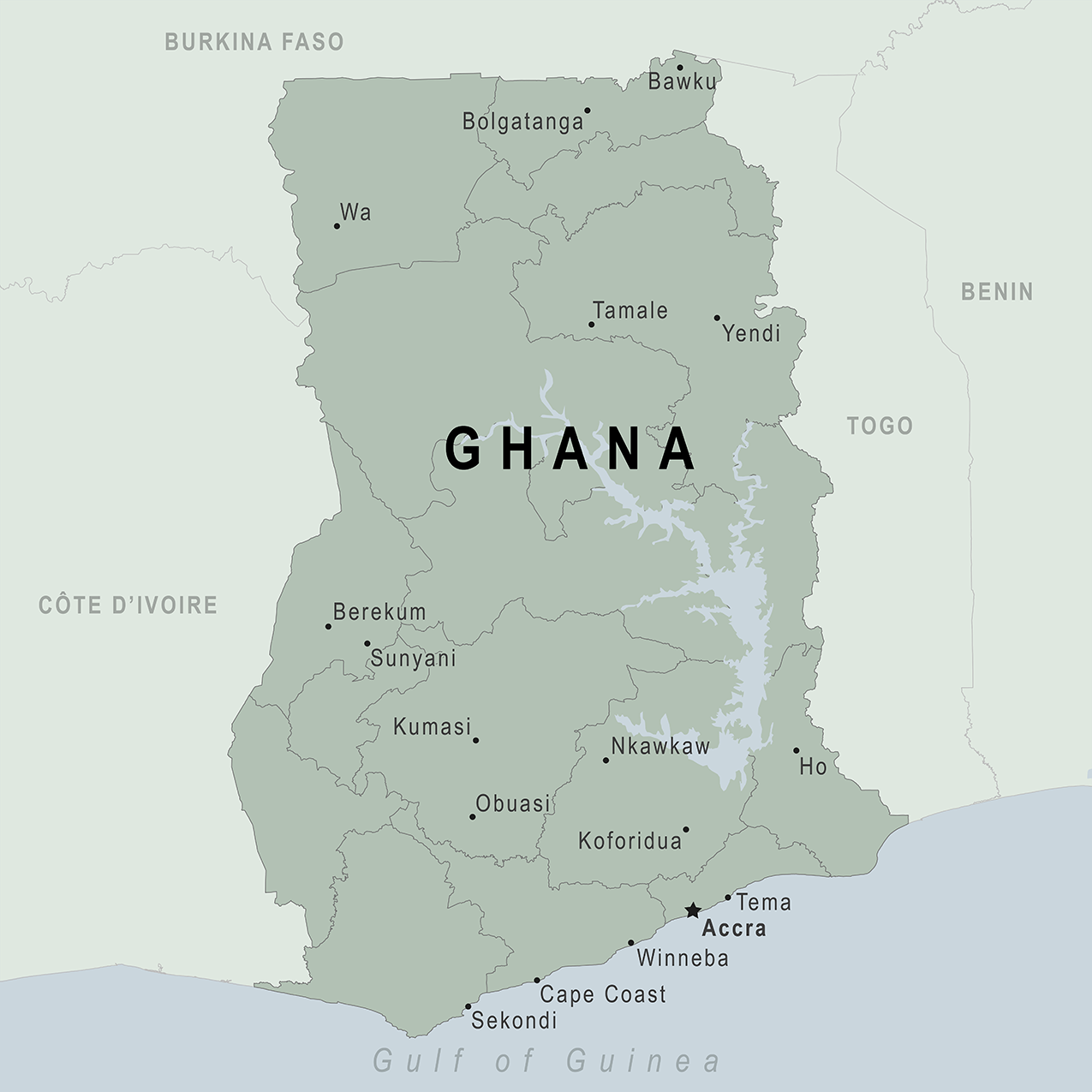
Be aware of current health issues in Ghana. Learn how to protect yourself.
Level 1 Practice Usual Precautions
- Updated Global Measles May 28, 2024 Many international destinations are reporting increased numbers of cases of measles. Destination List: Afghanistan, Angola, Armenia, Austria, Azerbaijan, Belarus, Benin, Burkina Faso, Burundi, Cameroon, Central African Republic, Chad, Côte d'Ivoire (Ivory Coast), Democratic Republic of the Congo, Djibouti, Equatorial Guinea, Ethiopia, Gabon, Ghana, India, Indonesia, Kazakhstan, Kyrgyzstan, Lebanon, Liberia, Libya, Malaysia, Mauritania, Nepal, Niger, Nigeria, Pakistan, Philippines, Qatar, Republic of South Sudan, Republic of the Congo, Romania, Russia, Senegal, Somalia, Sri Lanka, Sudan, Syria, Tajikistan, Togo, Turkey, United Arab Emirates, Uzbekistan, Yemen, Zambia
⇧ Top
Check the vaccines and medicines list and visit your doctor at least a month before your trip to get vaccines or medicines you may need. If you or your doctor need help finding a location that provides certain vaccines or medicines, visit the Find a Clinic page.
Routine vaccines
Recommendations.
Make sure you are up-to-date on all routine vaccines before every trip. Some of these vaccines include
- Chickenpox (Varicella)
- Diphtheria-Tetanus-Pertussis
- Flu (influenza)
- Measles-Mumps-Rubella (MMR)
Immunization schedules
All eligible travelers should be up to date with their COVID-19 vaccines. Please see Your COVID-19 Vaccination for more information.
COVID-19 vaccine
There is no longer active cholera transmission and vaccine is not recommended.
Cholera - CDC Yellow Book
Hepatitis A
Recommended for unvaccinated travelers one year old or older going to Ghana.
Infants 6 to 11 months old should also be vaccinated against Hepatitis A. The dose does not count toward the routine 2-dose series.
Travelers allergic to a vaccine component or who are younger than 6 months should receive a single dose of immune globulin, which provides effective protection for up to 2 months depending on dosage given.
Unvaccinated travelers who are over 40 years old, immunocompromised, or have chronic medical conditions planning to depart to a risk area in less than 2 weeks should get the initial dose of vaccine and at the same appointment receive immune globulin.
Hepatitis A - CDC Yellow Book
Dosing info - Hep A
Hepatitis B
Recommended for unvaccinated travelers of all ages traveling to Ghana.
Hepatitis B - CDC Yellow Book
Dosing info - Hep B
CDC recommends that travelers going to Ghana take prescription medicine to prevent malaria. Depending on the medicine you take, you will need to start taking this medicine multiple days before your trip, as well as during and after your trip. Talk to your doctor about which malaria medication you should take.
Find country-specific information about malaria.
Malaria - CDC Yellow Book
Considerations when choosing a drug for malaria prophylaxis (CDC Yellow Book)
Malaria information for Ghana.
Cases of measles are on the rise worldwide. Travelers are at risk of measles if they have not been fully vaccinated at least two weeks prior to departure, or have not had measles in the past, and travel internationally to areas where measles is spreading.
All international travelers should be fully vaccinated against measles with the measles-mumps-rubella (MMR) vaccine, including an early dose for infants 6–11 months, according to CDC’s measles vaccination recommendations for international travel .
Measles (Rubeola) - CDC Yellow Book
Meningitis (Meningococcal disease)
Recommended for travelers 2 months old or older traveling to areas of Ghana that are part of the meningitis belt during the dry season.
Meningococcal disease - CDC Yellow Book
Meningitis Belt Map
Dogs infected with rabies are commonly found in Ghana.
If rabies exposures occur while in Ghana, rabies vaccines may only be available in larger suburban/urban medical facilities.
Rabies pre-exposure vaccination considerations include whether travelers 1) will be performing occupational or recreational activities that increase risk for exposure to potentially rabid animals and 2) might have difficulty getting prompt access to safe post-exposure prophylaxis.
Please consult with a healthcare provider to determine whether you should receive pre-exposure vaccination before travel.
For more information, see country rabies status assessments .
Rabies - CDC Yellow Book
Recommended for most travelers, especially those staying with friends or relatives or visiting smaller cities or rural areas.
Typhoid - CDC Yellow Book
Dosing info - Typhoid
Yellow Fever
Required for all arriving travelers ≥9 months old.
Recommended for all travelers ≥9 months old.
Yellow Fever - CDC Yellow Book
- Avoid contaminated water
Leptospirosis
How most people get sick (most common modes of transmission)
- Touching urine or other body fluids from an animal infected with leptospirosis
- Swimming or wading in urine-contaminated fresh water, or contact with urine-contaminated mud
- Drinking water or eating food contaminated with animal urine
- Avoid contaminated water and soil
Clinical Guidance
Schistosomiasis
- Wading, swimming, bathing, or washing in contaminated freshwater streams, rivers, ponds, lakes, or untreated pools.
Avoid bug bites
African tick-bite fever.
- Avoid Bug Bites
African Tick-bite fever
Chikungunya
- Mosquito bite
- Mosquito bite
Leishmaniasis
- Sand fly bite
Airborne & droplet
- Breathing in air or accidentally eating food contaminated with the urine, droppings, or saliva of infected rodents
- Bite from an infected rodent
- Less commonly, being around someone sick with hantavirus (only occurs with Andes virus)
- Avoid rodents and areas where they live
- Avoid sick people
Lassa Fever
- Breathe in air or eat food contaminated with the urine or droppings of infected rats
- Touch the body fluids of a person infected with Lassa virus or objects contaminated with infected body fluids
Lassa fever
Tuberculosis (TB)
- Breathe in TB bacteria that is in the air from an infected and contagious person coughing, speaking, or singing.
Learn actions you can take to stay healthy and safe on your trip. Vaccines cannot protect you from many diseases in Ghana, so your behaviors are important.
Eat and drink safely
Food and water standards around the world vary based on the destination. Standards may also differ within a country and risk may change depending on activity type (e.g., hiking versus business trip). You can learn more about safe food and drink choices when traveling by accessing the resources below.
- Choose Safe Food and Drinks When Traveling
- Water Treatment Options When Hiking, Camping or Traveling
- Global Water, Sanitation and Hygiene | Healthy Water
- Avoid Contaminated Water During Travel
You can also visit the Department of State Country Information Pages for additional information about food and water safety.
Prevent bug bites
Bugs (like mosquitoes, ticks, and fleas) can spread a number of diseases in Ghana. Many of these diseases cannot be prevented with a vaccine or medicine. You can reduce your risk by taking steps to prevent bug bites.
What can I do to prevent bug bites?
- Cover exposed skin by wearing long-sleeved shirts, long pants, and hats.
- Use an appropriate insect repellent (see below).
- Use permethrin-treated clothing and gear (such as boots, pants, socks, and tents). Do not use permethrin directly on skin.
- Stay and sleep in air-conditioned or screened rooms.
- Use a bed net if the area where you are sleeping is exposed to the outdoors.
What type of insect repellent should I use?
- FOR PROTECTION AGAINST TICKS AND MOSQUITOES: Use a repellent that contains 20% or more DEET for protection that lasts up to several hours.
- Picaridin (also known as KBR 3023, Bayrepel, and icaridin)
- Oil of lemon eucalyptus (OLE) or para-menthane-diol (PMD)
- 2-undecanone
- Always use insect repellent as directed.
What should I do if I am bitten by bugs?
- Avoid scratching bug bites, and apply hydrocortisone cream or calamine lotion to reduce the itching.
- Check your entire body for ticks after outdoor activity. Be sure to remove ticks properly.
What can I do to avoid bed bugs?
Although bed bugs do not carry disease, they are an annoyance. See our information page about avoiding bug bites for some easy tips to avoid them. For more information on bed bugs, see Bed Bugs .
For more detailed information on avoiding bug bites, see Avoid Bug Bites .
Some diseases in Ghana—such as dengue, leishmaniasis, and African sleeping sickness—are spread by bugs and cannot be prevented with a vaccine. Follow the insect avoidance measures described above to prevent these and other illnesses.
Stay safe outdoors
If your travel plans in Ghana include outdoor activities, take these steps to stay safe and healthy during your trip.
- Stay alert to changing weather conditions and adjust your plans if conditions become unsafe.
- Prepare for activities by wearing the right clothes and packing protective items, such as bug spray, sunscreen, and a basic first aid kit.
- Consider learning basic first aid and CPR before travel. Bring a travel health kit with items appropriate for your activities.
- If you are outside for many hours in heat, eat salty snacks and drink water to stay hydrated and replace salt lost through sweating.
- Protect yourself from UV radiation : use sunscreen with an SPF of at least 15, wear protective clothing, and seek shade during the hottest time of day (10 a.m.–4 p.m.).
- Be especially careful during summer months and at high elevation. Because sunlight reflects off snow, sand, and water, sun exposure may be increased during activities like skiing, swimming, and sailing.
- Very cold temperatures can be dangerous. Dress in layers and cover heads, hands, and feet properly if you are visiting a cold location.
Stay safe around water
- Swim only in designated swimming areas. Obey lifeguards and warning flags on beaches.
- Practice safe boating—follow all boating safety laws, do not drink alcohol if driving a boat, and always wear a life jacket.
- Do not dive into shallow water.
- Do not swim in freshwater in developing areas or where sanitation is poor.
- Avoid swallowing water when swimming. Untreated water can carry germs that make you sick.
- To prevent infections, wear shoes on beaches where there may be animal waste.
Schistosomiasis, a parasitic infection that can be spread in fresh water, is found in Ghana. Avoid swimming in fresh, unchlorinated water, such as lakes, ponds, or rivers.
Keep away from animals
Most animals avoid people, but they may attack if they feel threatened, are protecting their young or territory, or if they are injured or ill. Animal bites and scratches can lead to serious diseases such as rabies.
Follow these tips to protect yourself:
- Do not touch or feed any animals you do not know.
- Do not allow animals to lick open wounds, and do not get animal saliva in your eyes or mouth.
- Avoid rodents and their urine and feces.
- Traveling pets should be supervised closely and not allowed to come in contact with local animals.
- If you wake in a room with a bat, seek medical care immediately. Bat bites may be hard to see.
All animals can pose a threat, but be extra careful around dogs, bats, monkeys, sea animals such as jellyfish, and snakes. If you are bitten or scratched by an animal, immediately:
- Wash the wound with soap and clean water.
- Go to a doctor right away.
- Tell your doctor about your injury when you get back to the United States.
Consider buying medical evacuation insurance. Rabies is a deadly disease that must be treated quickly, and treatment may not be available in some countries.
Reduce your exposure to germs
Follow these tips to avoid getting sick or spreading illness to others while traveling:
- Wash your hands often, especially before eating.
- If soap and water aren’t available, clean hands with hand sanitizer (containing at least 60% alcohol).
- Don’t touch your eyes, nose, or mouth. If you need to touch your face, make sure your hands are clean.
- Cover your mouth and nose with a tissue or your sleeve (not your hands) when coughing or sneezing.
- Try to avoid contact with people who are sick.
- If you are sick, stay home or in your hotel room, unless you need medical care.
Avoid sharing body fluids
Diseases can be spread through body fluids, such as saliva, blood, vomit, and semen.
Protect yourself:
- Use latex condoms correctly.
- Do not inject drugs.
- Limit alcohol consumption. People take more risks when intoxicated.
- Do not share needles or any devices that can break the skin. That includes needles for tattoos, piercings, and acupuncture.
- If you receive medical or dental care, make sure the equipment is disinfected or sanitized.
Know how to get medical care while traveling
Plan for how you will get health care during your trip, should the need arise:
- Carry a list of local doctors and hospitals at your destination.
- Review your health insurance plan to determine what medical services it would cover during your trip. Consider purchasing travel health and medical evacuation insurance.
- Carry a card that identifies, in the local language, your blood type, chronic conditions or serious allergies, and the generic names of any medications you take.
- Some prescription drugs may be illegal in other countries. Call Ghana’s embassy to verify that all of your prescription(s) are legal to bring with you.
- Bring all the medicines (including over-the-counter medicines) you think you might need during your trip, including extra in case of travel delays. Ask your doctor to help you get prescriptions filled early if you need to.
Many foreign hospitals and clinics are accredited by the Joint Commission International. A list of accredited facilities is available at their website ( www.jointcommissioninternational.org ).
In some countries, medicine (prescription and over-the-counter) may be substandard or counterfeit. Bring the medicines you will need from the United States to avoid having to buy them at your destination.
Malaria is a risk in Ghana. Fill your malaria prescription before you leave and take enough with you for the entire length of your trip. Follow your doctor’s instructions for taking the pills; some need to be started before you leave.
Select safe transportation
Motor vehicle crashes are the #1 killer of healthy US citizens in foreign countries.
In many places cars, buses, large trucks, rickshaws, bikes, people on foot, and even animals share the same lanes of traffic, increasing the risk for crashes.
Be smart when you are traveling on foot.
- Use sidewalks and marked crosswalks.
- Pay attention to the traffic around you, especially in crowded areas.
- Remember, people on foot do not always have the right of way in other countries.
Riding/Driving
Choose a safe vehicle.
- Choose official taxis or public transportation, such as trains and buses.
- Ride only in cars that have seatbelts.
- Avoid overcrowded, overloaded, top-heavy buses and minivans.
- Avoid riding on motorcycles or motorbikes, especially motorbike taxis. (Many crashes are caused by inexperienced motorbike drivers.)
- Choose newer vehicles—they may have more safety features, such as airbags, and be more reliable.
- Choose larger vehicles, which may provide more protection in crashes.
Think about the driver.
- Do not drive after drinking alcohol or ride with someone who has been drinking.
- Consider hiring a licensed, trained driver familiar with the area.
- Arrange payment before departing.
Follow basic safety tips.
- Wear a seatbelt at all times.
- Sit in the back seat of cars and taxis.
- When on motorbikes or bicycles, always wear a helmet. (Bring a helmet from home, if needed.)
- Avoid driving at night; street lighting in certain parts of Ghana may be poor.
- Do not use a cell phone or text while driving (illegal in many countries).
- Travel during daylight hours only, especially in rural areas.
- If you choose to drive a vehicle in Ghana, learn the local traffic laws and have the proper paperwork.
- Get any driving permits and insurance you may need. Get an International Driving Permit (IDP). Carry the IDP and a US-issued driver's license at all times.
- Check with your auto insurance policy's international coverage, and get more coverage if needed. Make sure you have liability insurance.
- Avoid using local, unscheduled aircraft.
- If possible, fly on larger planes (more than 30 seats); larger airplanes are more likely to have regular safety inspections.
- Try to schedule flights during daylight hours and in good weather.
Medical Evacuation Insurance
If you are seriously injured, emergency care may not be available or may not meet US standards. Trauma care centers are uncommon outside urban areas. Having medical evacuation insurance can be helpful for these reasons.
Helpful Resources
Road Safety Overseas (Information from the US Department of State): Includes tips on driving in other countries, International Driving Permits, auto insurance, and other resources.
The Association for International Road Travel has country-specific Road Travel Reports available for most countries for a minimal fee.
For information traffic safety and road conditions in Ghana, see Travel and Transportation on US Department of State's country-specific information for Ghana .
Maintain personal security
Use the same common sense traveling overseas that you would at home, and always stay alert and aware of your surroundings.
Before you leave
- Research your destination(s), including local laws, customs, and culture.
- Monitor travel advisories and alerts and read travel tips from the US Department of State.
- Enroll in the Smart Traveler Enrollment Program (STEP) .
- Leave a copy of your itinerary, contact information, credit cards, and passport with someone at home.
- Pack as light as possible, and leave at home any item you could not replace.
While at your destination(s)
- Carry contact information for the nearest US embassy or consulate .
- Carry a photocopy of your passport and entry stamp; leave the actual passport securely in your hotel.
- Follow all local laws and social customs.
- Do not wear expensive clothing or jewelry.
- Always keep hotel doors locked, and store valuables in secure areas.
- If possible, choose hotel rooms between the 2nd and 6th floors.
To call for emergency services while in Ghana, dial 193 for an ambulance, 192 for the fire department, and 191 for the police. Write these numbers down to carry with you during your trip.
Learn as much as you can about Ghana before you travel there. A good place to start is the country-specific information on Ghana from the US Department of State.
Healthy Travel Packing List
Use the Healthy Travel Packing List for Ghana for a list of health-related items to consider packing for your trip. Talk to your doctor about which items are most important for you.
Why does CDC recommend packing these health-related items?
It’s best to be prepared to prevent and treat common illnesses and injuries. Some supplies and medicines may be difficult to find at your destination, may have different names, or may have different ingredients than what you normally use.
If you are not feeling well after your trip, you may need to see a doctor. If you need help finding a travel medicine specialist, see Find a Clinic . Be sure to tell your doctor about your travel, including where you went and what you did on your trip. Also tell your doctor if you were bitten or scratched by an animal while traveling.
If your doctor prescribed antimalarial medicine for your trip, keep taking the rest of your pills after you return home. If you stop taking your medicine too soon, you could still get sick.
Malaria is always a serious disease and may be a deadly illness. If you become ill with a fever either while traveling in a malaria-risk area or after you return home (for up to 1 year), you should seek immediate medical attention and should tell the doctor about your travel history.
For more information on what to do if you are sick after your trip, see Getting Sick after Travel .
Map Disclaimer - The boundaries and names shown and the designations used on maps do not imply the expression of any opinion whatsoever on the part of the Centers for Disease Control and Prevention concerning the legal status of any country, territory, city or area or of its authorities, or concerning the delimitation of its frontiers or boundaries. Approximate border lines for which there may not yet be full agreement are generally marked.
Other Destinations
If you need help finding travel information:
Message & data rates may apply. CDC Privacy Policy
File Formats Help:
- Adobe PDF file
- Microsoft PowerPoint file
- Microsoft Word file
- Microsoft Excel file
- Audio/Video file
- Apple Quicktime file
- RealPlayer file
- Zip Archive file
Exit Notification / Disclaimer Policy
- The Centers for Disease Control and Prevention (CDC) cannot attest to the accuracy of a non-federal website.
- Linking to a non-federal website does not constitute an endorsement by CDC or any of its employees of the sponsors or the information and products presented on the website.
- You will be subject to the destination website's privacy policy when you follow the link.
- CDC is not responsible for Section 508 compliance (accessibility) on other federal or private website.

Ghana Travel Guide
Looking to plan the perfect trip to Ghana ?
Then you’re in the right place!
Ghana is a country in West Africa known for its diverse landscapes, from lush rainforests to scenic beaches.
The country is located close to the equator, giving it a hot climate year-round.
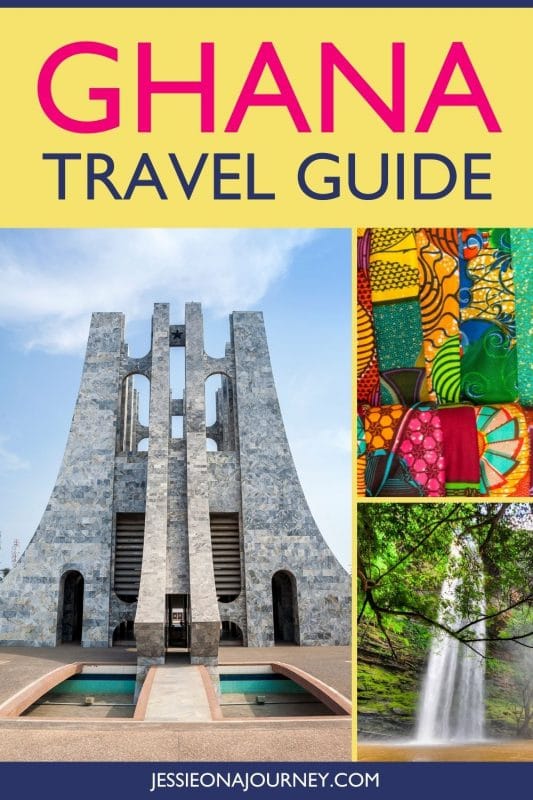
For many tourists, Ghana is still off the beaten path, making it one of the best international travel destinations for adventurous travelers.
Keep reading for an epic Ghana travel guide that will help you plan an incredible trip!
Note: This guide to Ghana travel contains affiliate links to trusted partners!

Use this Ghana travel map to begin planning your trip!
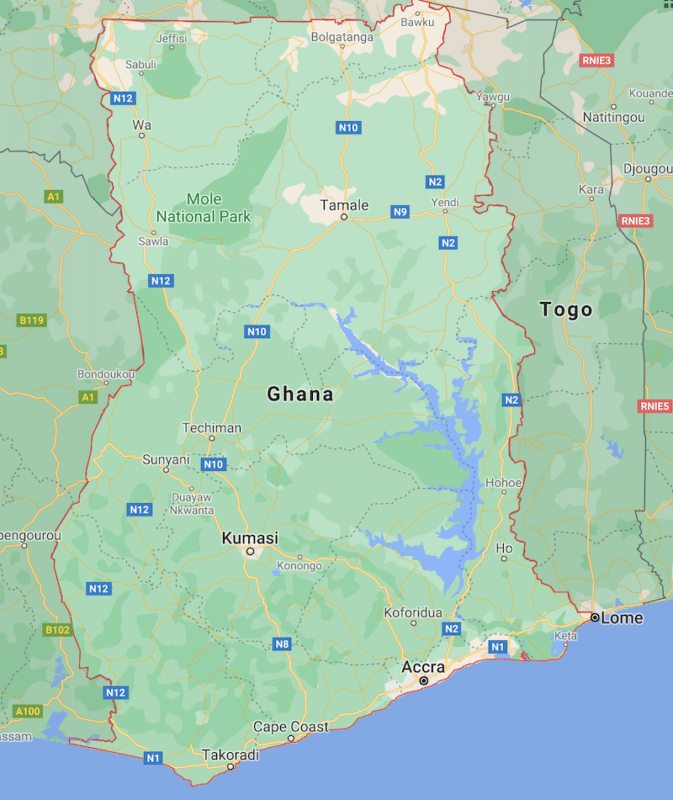
Click here for an interactive version of the above map.
Ghana Travel Guides
Learn about the best places to visit in Ghana, Africa.
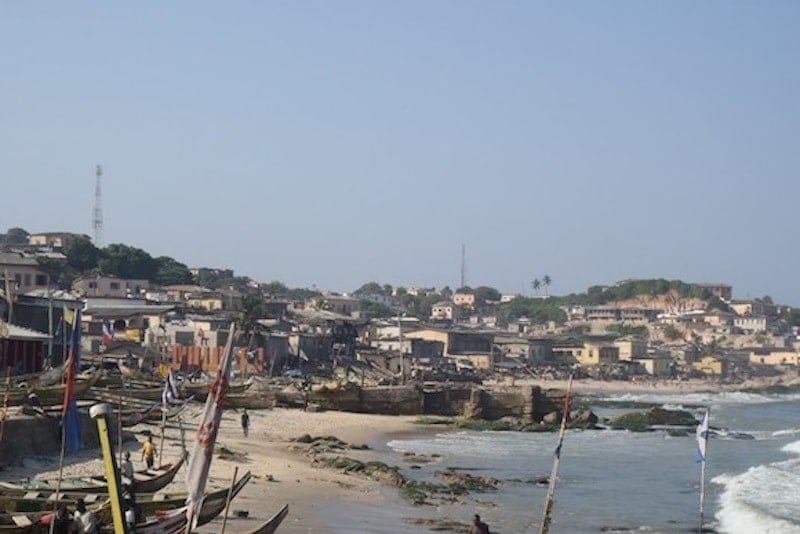
Traveler’s Guide To Cape Coast, Ghana
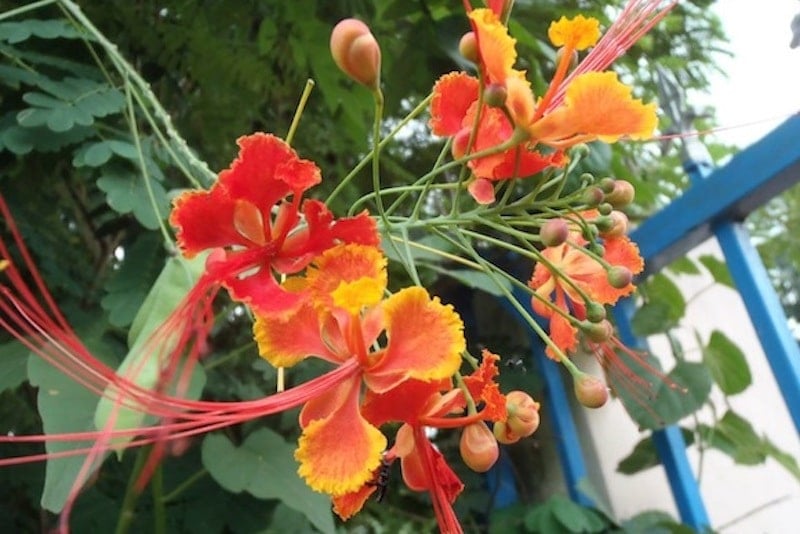
Traveler’s Guide To Ghana’s Volta Region
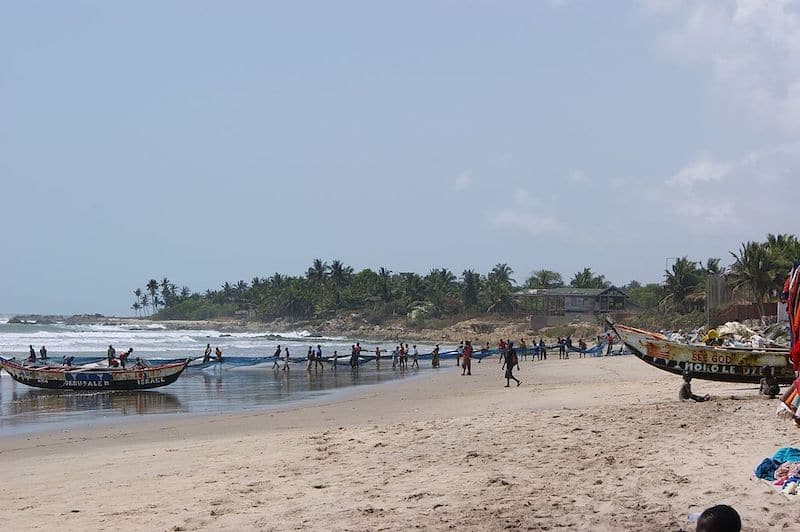
Drums, Dancing & Palm Wine In Kokrobite, Ghana
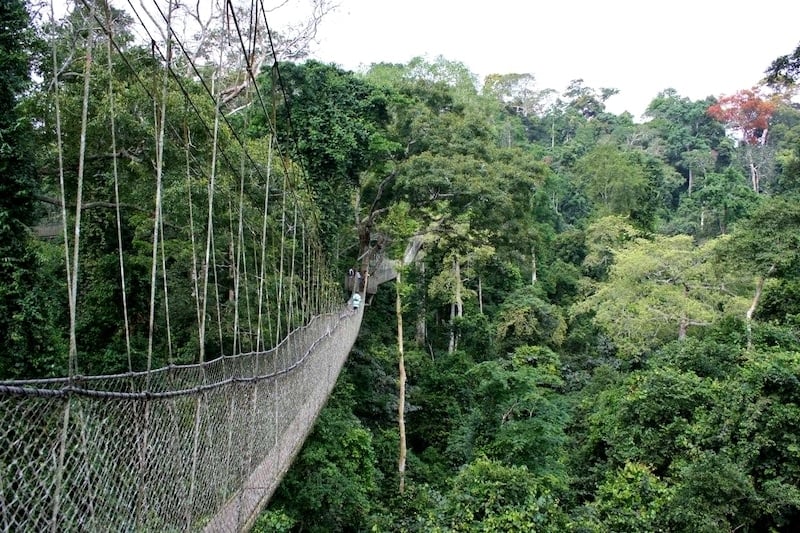
Hiking Above The Trees On A Canopy Walk In Ghana’s Kakum National Park
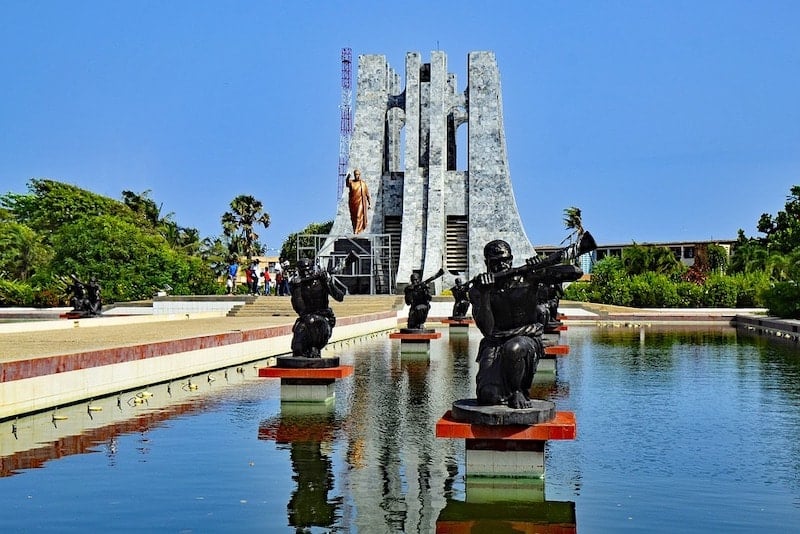
Accra City: My First Two Days In Ghana, Africa
Ghana Travel Advice
Planning a trip to Ghana, Africa? These tips can help!
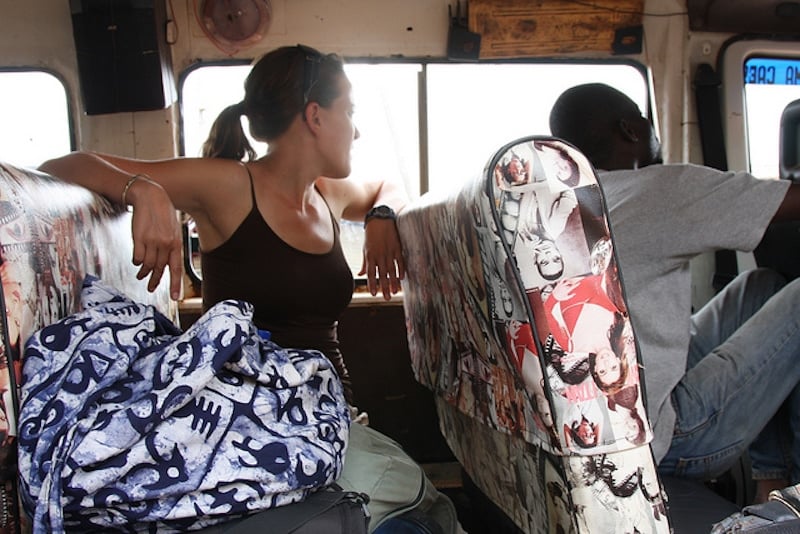
How To Survive The Trotro In Ghana, Africa

10 Important Phrases To Know Before Going To Ghana, Africa
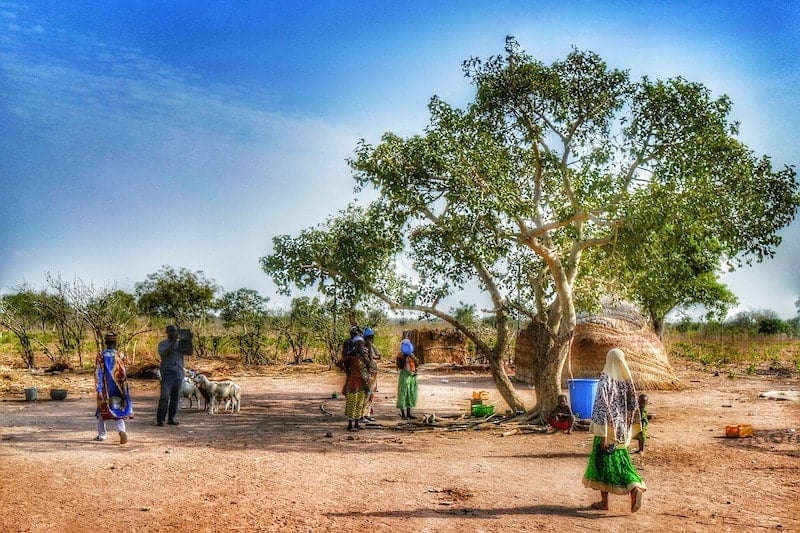
10 Reasons To Visit Ghana, Africa
Food In Ghana, Africa
Enjoy the best local food with you visit Ghana, a country known for its culinary culture.
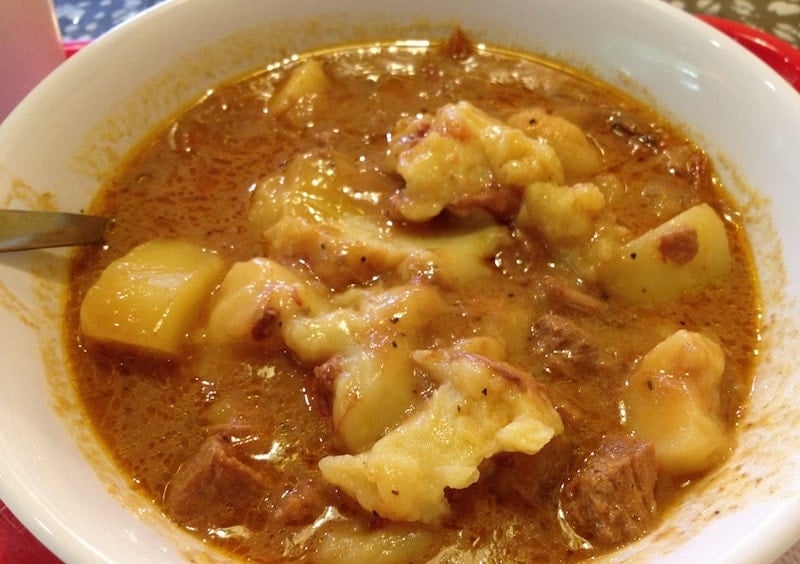
How To Eat Fufu In Ghana, Africa
Top Ghana Tours
When visiting Ghana, consider booking one of these top-rated tours:
- Ghanaian Naming Ceremony & Home Coming Experience
- Accra To Cape Coast And Elmina Day Tour
- Experience the Beauty, History & Culture of Accra in a Day
- Full-Day Accra Safari & Boat Cruise Private Tour
- Quad Biking in the Mountains
- Home Cooking Class by Auntie K
Click here for a full list of tours in Ghana .
Ghana Travel Insurance
It doesn’t matter if you’re traveling solo or with a group on a Ghana tour. When visiting Ghana — or anywhere else in the world — make sure to get travel insurance.
In my opinion, the best travel medical insurance for travelers is SafetyWing as they’ve got a large network and offer both short-term and long-term coverage — including coverage if you’re traveling for months as well as limited coverage in your home country).
Additionally, SafetyWing is budget-friendly and offers $250,000 worth of coverage with just one low overall deductible of $250.
With coverage, you’ll have peace of mind as you embark on your Ghana itinerary.
Click my referral link here to price out travel insurance for your trip in just a few clicks .
Ghana Hotels
Click here to browse hotels in Ghana!
Prefer self-contained stays?
Click here to check out unique local rentals!
You can also use this map to search for local stays:
Renting A Car In Ghana
Need a rental car for your Ghana trip?
Use Discover Cars to quickly compare your car rental options.
Ghana Travel FAQ
Below, find answers to frequently asked questions about traveling Ghana, Africa.
Q: Do I need a visa to visit Ghana? If so, how do I get a Ghana, visa?
A visa is required for travelers from many countries (including the United States, United Kingdom, Canada, and Australia) in order to visit Ghana.
It’s recommended to view your country’s Ghana International Travel Information page for the most up-to-date information on entry and exit requirements — including visa information — for foreign citizens. You can also contact the Embassy of Ghana.
Q: What is the best travel destination in Ghana?
Some of the most popular destinations in Ghana are:
- Kakum National Park
- Wli Waterfalls
- The beaches of the Cape Coast
- Mole National Park
- The capital city of Accra
Q: Is Ghana expensive to travel?
Ghana is a moderately-priced destination. A budget traveler can expect to spend around $40 a day, while a mid-range traveler can spend around $100 a day.
One of the most expensive parts of traveling in Ghana is transportation if you choose to rent a car or take taxis. (Public transportation is much cheaper.)
Q: Is it safe to travel to Ghana?
Ghana is an overall safe country to visit. Non-violent crimes such as theft and tourist scams are somewhat common, especially in areas popular with tourists such as Accra and the beaches.
Homosexuality is illegal in Ghana and violence against the LGBTQ+ community does occur, so LGBTQ+ travelers should be cautious when traveling in Ghana.
Q: When is the best time to travel to Ghana?
The best time of year to visit Ghana is October through March, during the dry season. Temperatures in Ghana are hot year-round due to the country’s proximity to the equator.
What would you add to this Ghana travel guide?

- 3 Other destinations
- 4.1.1 Early times
- 4.1.2 Colonial era
- 4.1.3 Modern era
- 4.2 Climate
- 4.4 Holidays
- 4.5 Tourist information
- 5.1 Visa requirements
- 5.2 By plane
- 5.3 By train
- 5.6 By boat
- 6.1 By plane
- 6.2 By train
- 6.5 By tro-tro
- 6.6 By taxi
- 8.1 Historic and UNESCO World Heritage sites
- 10.3 Shopping
- 10.4 Adinkrah symbols and sacred stools
- 16 Stay safe
- 17 Stay healthy
Ghana is a country in West Africa . It's a gratifying destination for first-time visitors to West Africa (it's sometimes called "Africa for beginners"), owing to its good infrastructure, political stability and widespread use of English. The people are generally very helpful and welcoming. While their laid-back attitude and a lack of organised tourist sights or trips can be a little annoying to begin with, you'll quickly realise that it is one of the delights of this country.
Tourism in Ghana is growing very quickly, and tour operators are seeing increased requests for Ghana as a travel destination. Ghana has gold mines, and is a stable country with good potential for growth.
Regions [ edit ]
There are 16 administrative regions (formerly 10) in Ghana: the Northern Region which is the largest in terms of size, Eastern Region, Western Region, Upper East Region, Upper West Region, Central Region, Volta Region , Oti Region, Western North Region, North East Region, Ahafo Region, Savannah Region, Bono East Region, Ashanti Region , and Brong Ahafo Region which is the second largest.

Cities [ edit ]
- 5.533333 -0.216667 1 Accra — national capital and largest city.
- 5.1 -1.25 2 Cape Coast — the first capital of Gold Coast (the former name of Ghana), Cape Coast is home to a slave castle that is a UNESCO World Heritage site
- 6.1 -0.266667 3 Koforidua — regional capital of the Eastern Region
- 6.7 -1.625 4 Kumasi — former capital of the Ashanti Empire on the UNESCO World Heritage List for Ashanti traditional buildings, and Ghana's second-largest city.
- 6.2 -1.683333 5 Obuasi — mining town.
- 4.916667 -1.766667 6 Sekondi-Takoradi Also known as twin city or oil city
- 7.333333 -2.333333 7 Sunyani — the capital of Brong Ahafo Region
- 9.4075 -0.853333 8 Tamale — largest city in the north, fastest-growing metropolis in Ghana and gateway to Mole National Park
- 5.666667 -0.016667 9 Tema — industrial and port city on the Greenwich Meridian

Other destinations [ edit ]

- 5.416667 -1.316667 3 Kakum National Park — rainforest area with a long canopy walk, delightful to be above the treetops, but rare to see any wildlife except birds. Monkeys, elephants and antelope are said to live in the region. There is a good little museum and a café at the park entrance.
- 9.7 -1.833333 4 Mole National Park — savannah with buffalo, monkeys, antelope, and reintroduced lions & elephants; driving and walking safaris are popular, you can even camp for the night on the savannah.
- 10.992222 -1.113333 5 Paga — a town in the north home to "sacred crocodiles" which are tame and live in Paga Crocodile Pond.
- 5.90941 0.065348 6 Shai Hills Reserve — a great day trip near Accra home to baboons, parrots, & antelope; you can tour the reserve on horseback.
In addition, the forts and castles of Elmina , Cape Coast, Butri , Apam , Abandze , Komenda , Axim , Dixcove , Shama and Senya Bereku are collectively listed on the UNESCO World Heritage List .
Understand [ edit ]

Ghana means "Warrior King" and the name of the country is derived from the ancient Ghana Empire.
History [ edit ]
Early times [ edit ].
There is archaeological evidence which shows that humans have lived in what is present day Ghana from about 1500 BC. Nonetheless, there is no proof that those early dwellers are related to the current inhabitants of the area. Oral tradition has it that many of Ghana's current ethnic groups such as the multi-ethnic Akan, the Ga and the Ewe arrived around the 13th century AD. However, the Dagombas are believed to be the first settlers, having been fully established by 1210 AD, before the arrival of other ethnic groups. Modern Ghanaian territory includes what was the Empire of Ashanti, one of the most influential states in sub-Saharan Africa before colonial rule. Its capital, Kumasi , was said to be one of the most vibrant and impressive cities in pre-colonial Africa, but was largely destroyed and looted by the British during the Third Anglo-Ashanti War in 1874.
Colonial era [ edit ]
Early European contact by the Portuguese, who came to Ghana in the 15th century, focused on the extensive availability of gold. By 1548, the Dutch had joined them, and built forts at Komenda and Kormantsi. Other European traders joined in by the mid 17th century, largely English, Danes and Swedes. British merchants, impressed with the gold resources in the area, named it the Gold Coast, while French merchants, impressed with the trinkets worn by the coastal people, named the area to the west "Côte d'Ivoire", or Ivory Coast. The Gold Coast was known for centuries as 'The White Man's Grave' because many of the Europeans who went there died of malaria and other tropical diseases.
After the Dutch withdrew in 1874, Britain made the Gold Coast a protectorate. Following conquest by the British in 1896, until independence in March 1957, the territory of modern Ghana excluding the Volta Region (British Togoland), was known as the Gold Coast.
Many wars occurred between the colonial powers and the various nation-states in the area and even under colonial rule the chiefs and people often resisted the policies of the British. Moves toward de-colonisation intensified after World War II and after an intense struggle, on March 6, 1957 elected parliamentary leader Kwame Nkrumah declared Ghana as "free forever". The nation thus became the first sub-Saharan African country to gain its independence.
Modern era [ edit ]
Kwame Nkrumah was a champion of pan-Africanism and his popularity was a major concern for the West. Nkrumah was overthrown by the military while he was abroad in February 1966. A series of coups from 1966 to 1981 ended with the ascension to power of the flamboyant Flight Lieutenant Jerry Rawlings in 1981. These changes resulted in the suspension of the constitution in 1981 and the banning of political parties. The economy suffered a severe decline soon after, and many Ghanaians migrated to other countries.
Rawlings changed many old economic policies and the economy soon began to recover. A new constitution restoring multi-party politics was instigated in 1992, and Rawlings was elected as president then and again in 1996. In 2009, John Atta Mills took office as president marking the second time that power had been transferred from one legitimately elected leader to another, and securing Ghana's status as a stable democracy.
Climate [ edit ]
Ghana is a tropical country with a hot and humid climate. Average daily temperatures range from 30°C (86°F) during the day to 24°C (75°F) at night. In northern Ghana, rainy season occurs between April and October, while in the south of the country, rainfall is experienced between April and June and the months of September and October. Southwest Ghana tends to get wetter than the rest of the country. Between December and March, Ghana is affected by the Harmattan, a dry wind coming from the Sahara, causing the humidity to be very low and the air very dry and with dusty fog.
People [ edit ]
The largest ethnic group in Ghana is the Akan , but there are many others, including the Ashanti.
Holidays [ edit ]
- New Year's Day (January 1)
- Independence Day (March 6)
- Easter (Good Friday and Easter Monday)
- Republic Day (July 1)
- Founder's Day (September 21)
- Eid al-Adha (various)-Islamic religious observances
- December 25 (Christmas)
- December 26 (Boxing Day)
Tourist information [ edit ]
- Ghana Travel information
Get in [ edit ]
Visa requirements [ edit ].

Foreign nationals of the following countries can enter Ghana for a maximum of 30 days, or for a maximum of 90 days:
ECOWAS countries, plus Botswana , Egypt , Eswatini , Kenya , Lesotho , Malawi , Singapore , Tanzania , Trinidad and Tobago , Uganda and Zimbabwe .
Otherwise, unless in direct airside transit through a Ghanaian airport, all other foreign nationals require a visa to enter Ghana. For information about obtaining visas for Ghana, visit the official website of the Ghana Immigration Service .
There is no such thing as a visa on arrival for Western countries. It's thus best to play it safe and get a visa in advance. The Ghanaian government's online Ghana list of embassies is out of date. A three-month single-entry visa costs US$60; a one-year, multiple entry visa costs US$100. You must have a yellow fever vaccination certificate which will be presented to customs when entering.
- In London a 3-month visa cost £60 and takes 10 working days to get.
If you require a visa to enter Ghana, you might be able to apply for one at a British embassy, high commission or consulate in the country where you legally reside if there is no Ghanaian embassy or consulate. For example, the British embassies/consulates in Bogotá , Amman , Helsinki [1] , Hong Kong [2] and Tripoli [3] accept Ghanaian visa applications (this list is not exhaustive). British diplomatic posts charge UK£50 to process a Ghanaian visa application and an extra £70 if the authorities in Ghana require the visa application to be referred to them. The authorities in Ghana can also decide to charge an additional fee if they correspond with you directly.
Travellers who are staying longer than their entry visa (a maximum of 30 or 60 days are usually granted for tourists) are advised to bring their passport for visa extension to Immigration Service early and expect delays in getting their passports back. Two weeks are provided as the guideline for processing time, but this can often take much longer. Be careful about what dates are stamped in your passport. Sometimes Immigration puts a 60-day stamp on a visa for 3 months: the stamps is what counts. If you don't want to go through the hassle of Immigration Service, you may consider going to Togo and back to get a visa stamp at the border.
By plane [ edit ]

All international flights are through Kotoka International Airport at Accra (ACC). ACC is very central and there are always airport shuttles and lots of taxis available to connect you to other parts of the city. Terminal 3 at Kotoka International operates as a "first world" facility - very efficient and modern. Almost 29 international airlines fly to Kotoka International Airport with annual air traffic of over 4 million
TAP Air Portugal has some of the lowest fares from Europe via Lisbon to Accra. Air Portugal also fly from Accra to Sao Tome. Air Delta Air Lines serves Accra from New York City (JFK) while South African Airlines operates several times a week from Washington-Dulles, with continuing service to Johannesburg. British Airways flies from London Heathrow . KLM flies daily from Schiphol, Amsterdam and Brussels Airlines operates regular flights to Brussels. Lufthansa daily direct flights from Frankfurt and Milan respectively, with a short stop in Lagos , Nigeria . Emirates flies daily non-stop from Dubai in the Middle East and Middle East Airlines (with connections to Asia and the Far East). Ethiopian Airlines flies daily non-stops from Addis Ababa (with stopover, you can visit another African country). Also, Egypt Air flies non-stop to Accra. If coming from Brazil or nearby, the flight from Rio de Janeiro to Luanda , Angola on Angola Airlines or Sao Paulo via Lome, through Ethiopian Airlines and their partner airline ASKY would be the quickest routing. Turkish Airlines flies from İstanbul to Accra.
Royal Air Maroc also has several flights a week to Accra out of Casablanca. Arik Air and operates flights to Nigeria.
The lowest fares to Ghana outside of Africa are usually from London, but that doesn't necessarily mean British Airways is the cheapest (i.e. a transfer inside continental Europe may be required). TAP flies daily to Accra from Lisbon . Those living in North America might be able to save by getting a cheap ticket to London from their home country. (Be aware that there are several London international airports, such as Gatwick and Heathrow, and allow lots of connection time.)
See further down for domestic flight information.
By train [ edit ]
No international rail connections exist. However some major mining towns and villages are linked by the rail.
By car [ edit ]
The border at Aflao with Togo is an entertaining scene. It appears very disorderly and human traffic seems to flow freely. However it is unlikely that a white person can pass through without all the formalities. The border guards are professional enough where you will not be asked for bribes—although some women may get marriage proposals! A visa into Ghana can be bought at the border at double the normal cost (because of the speedy delivery) for some GH₵110. The Togolese 7-day transit visa is a lovely cheap 5,000 CFA francs (2011). Change your money before crossing, if you need to buy a visa. Ideally, change your money at a bank in Aflao (even better to do it in advance at a ForEx in Accra ) or Lomé .
While at the border crossings, keep your cameras stowed in your packs; both Ghanaian and Togolese border guards are sure to take your camera if they spot you snapping a photo, or at the least give you a good chiding.
The border with Cote d'Ivoire at Elubo takes less time to cross but Ivorian guards seem much more keen on the rules.
By bus [ edit ]
Ghana's national bus company, State Transport Corporation, runs an inter-city bus service within Ghana and to some major West African cities. A recent public-private partnership produced Metro Mass Company, which runs services within the capital city, Accra , and within other regions in Ghana.
ABC Transport [4] , based in Nigeria has a daily air conditioned bus from Lagos to Accra for about GH₵45.
Coming in from Burkina Faso, the main route is a bus from Ouagadougou to Bolgatonga, Tamale and Accra. Or you can cross the border at Hamile (or Hamale, as it is called on the BF-side of the border). Take a bus from Bobo-Dioulasso. You have to cross the border by foot (after leaving Burkina Faso, you walk some 300 m through no-man's-land before reaching Ghana customs. Locals will be lingering around and will be looking to change money at fairly reasonable rates). Then take a Metro Mass bus to Wa (or hop on a tro-tro and do the trip in stages). Be sure to take an early bus from Bobo: if the bus has a delay, you may end up having to spend the night in Hamile. There is a place where you can get a room (GH₵10); the custom officers can help you find it.
By boat [ edit ]
There are no authorised boat services to Ghana. There are, however, pantos and ferries that work on the Volta lake linking the eastern region to the Volta region and other areas
Get around [ edit ]
The domestic air transportation scene in Ghana is very dynamic and appears to go through regular changes. As of October 2019 there are only two registered carriers: Passion Air serving Accra, Kumasi & Tamale, and Africa World Airlines who serve the same centres in addition to Takoradi. All aircraft are of a high standard, as is the service level of airline staff, flights run on time and are reasonably priced. There are no scheduled services to Sunyani or Obuasi.
The rail network in Ghana has long been dormant, however as of 2020 there are signs of rehabilitation on some stretches and intercity passenger services might materialize within a few years. The only services that operate as of early 2021 are commuter lines in Sekondi-Takoradi and between the capital Accra and Tema .
In Accra, you can join the train from the Central Station in Accra or at other stations and halts along the Accra-Nsawam railway line. Until 2017, the trains did go from Accra to Nsawam. However, it goes to Achimota, before joining the branch line to Tema.
In Takoradi, the passenger train runs from Takoradi to Kojokrom, and then joins the branch line from Kojokrom and ends at Sekondi.
It is very common to see the train carry freight from Nsuta or Tarkwa to Takoradi.

Roads are variable. In Accra most are fairly good. Significant improvements are being made on the main road between Accra and Kumasi. Most of the roads outside Accra apart from the major ones are dirt tracks. The road between Techiman and Bole is particularly bad and should be avoided if possible. For travel on most roads in the North of the country a 4x4 is required, a saloon car will cope with some of them in the dry season but is not recommended.
Cars with foreign registration are not allowed to circulate at night 18:00-06:00. Only Ghanaian registered vehicles are allowed on the road at this time. Non compliance can result in fines and the impounding of the vehicle for the night.
When traveling in some parts of the country, there will be police checkpoints on the road, some real, most fake. At the fake checkpoints, they will come up with non-existent laws that you supposedly broke and will try to get a bribe out of you. Usually, you can pay the police about 1-5 cedis to let you go. At some checkpoint, they will give you a logbook that you need to show to the officers at the next checkpoint. If you decide not to pay the bribe, traveling even short distances will become onerous , as the police will keep you at the checkpoint for a long time. For brave travelers, it is possible to drive through some of the illegal checkpoints, without stopping to pay the bribe.
With the collapse of the state owned transport company (STC), many private own companies are springing up and providing better service to passengers. Companies such as VIP Bus, O.A. Travel and Tours, M Plaza, and Diplomatic Transport ply the major cities and towns of the country. The VIP bus company is now the major carrier between Accra, Kumasi, Sunyani, Takoradi etc. Fare depends on preferred company and destination of travel. Most of these buses are a/c coaches, there are no advance tickets and there are meal and wash-room stops when aboard.
However these private buses don't travel to rural areas of the country. Metro bus which is a state company is by far the cheapest means of travel to consider when travelling between towns.
By tro-tro [ edit ]
A 'tro-tro' is almost any sort of vehicle that has been adapted to fit in as many people, possessions, and occasionally livestock, as possible. Tro-tros are typically old, 12-passenger VW or Mercedes-Benz vans. Similarly to 'shared' taxis, tro-tros will run along fixed routes and have fixed fares, and will rarely run with less than capacity (so be prepared to wait). They are inexpensive (cheaper than shared taxis and STC buses) and fares should reflect distance travelled, however they have a questionable safety record and frequently breakdown. Breakdowns however are usually not too much of a problem since they will break down in a route where other tro-tros run, so you can just grab another one. Although they generally run point to point they will usually pick and drop on route if required. They make runs within the city (i.e. Circle to Osu for GH₵0.20) as well as intercity routes. They are often the only option between remote towns but are not recommended for long journeys. Tro-tros are an excellent way to meet Ghanaians, and are always great for a cultural adventure. Sometimes they will make you pay extra for luggage, and occasionally they will try to overcharge (very rarely).
If you feel like being an elite tro-tro rider, ask around for City Express , a newish service sporting the usual minivan, but with working brakes, non-stop travel, half the seats, and impressive air conditioning. It mostly runs between the larger cities along the coast, e.g., Takoradi , Accra , Aflao , et al.
By taxi [ edit ]
Taxis are prevalent, easy to spot, safe, and as a tourist you will find they find you quick enough if you need one. To charter a taxi is more expensive than to share one, but prices are negotiable and almost always need to be bargained over. Always settle on a fare before getting in. A taxi for a very short route should be no more than GH₵1.00, longer GH₵2.50-5.00 and GH₵8.00 should be enough for most places in the city. As of December 2011, you can use a rough rate of GH₵1.00 for every 1.5 km travelled (check Google Maps for the distance between places). Fares continue to fluctuate with the fuel prices on the international market. Almost every taxi driver will start with a high price that is 1.5x-3x the local price if you're a foreigner and then you'll have to bargain them down. You'll get the best price when you start to walk away from the taxi. In Accra and the major cities most taxis that will stop for you assume you require a charter taxi and unless you are on a very strict budget it's usually easiest to do this. In more remote areas, shared taxis are most common. Little [dead link] ride hailing app works in Ghana.
Talk [ edit ]
English is both the official language and the lingua franca between Ghana's many peoples. English speakers will have no trouble communicating their needs anywhere in the country; Ghanaians usually speak English quite fluently, albeit with a strong accent and some quirks. Official government documents are in English, but there are over 40 distinct languages spoken in Ghana including Twi / Fante in the Ashanti and Fante regions, Ga in Greater Accra, Ewe east of Lake Volta, Dagbani , and so on. "Obruni", the Akan word for foreigner literally means "white man", is generally shouted at any tourist in the more heavily trafficked areas, black or white, male or female. This gets tiresome.
In the northern regions and among Ghanaian Muslims in general, the Hausa language is also used as a lingua franca.
See [ edit ]

Historic and UNESCO World Heritage sites [ edit ]
For many visitors the history of Ghana starts with the slave trade , and interaction with Europeans, but there was a long and rich history before that. Remnants of thriving civilisations can be seen in the Northern region, at both the Larabanga mosque which dates from the 15th century and the 16th-century Nalerigu Defence Wall.
With the growth in power and prestige of the Ashanti Kingdom in the 17th and 19th centuries, the capital Kumasi also grew and now contains a number of historic sights.
However the slave trade did leave its mark on Ghana, with forts built by the British, Dutch, Danish, Germans, Portuguese and Swedish dotted all along the coast. Excellent examples of these can be seen at both Cape Coast and Elmina , these forts give a glimpse of the time of slavery and a view of the last sight of Africa for thousands of people, as well as being UNESCO World Heritage sites .
Another World Heritage site is the village of Nzulezo , which is built on stilts.

Nature [ edit ]

Ghana is blessed with an abundance of natural treasures, from beautiful beaches such as those at Kokrobite and Winneba, where you can relax with a cocktail, enjoy a stay at a beach front hotel or watch the fishermen at work. Alternatively you could take the waters inland instead, Volta Lake created by the damming of the River Volta at Akosombo in the mid-1960s to provide a source of electricity to Ghana now also provides a wonderful viewing point from the dam itself or trips out onto the lake itself or you can take a trip on the River Volta instead at Ada.
In the Ashanti region not far from Kumasi is Lake Bosumtwi, a 10.5 km diameter meteor impact crater lake, which was created by a meteor strike approximately 1 million years ago, as well a being extremely picturesque the lake holds a spiritual significance to the Ashanti, whose traditional belief asserts that souls of the dead meet the god Twi at the lake.
Also inland, are two more national treasures in the form of two world renowned national parks. Kakum National Park to walk of the elevated rope bridges within the forest, with the opportunity for bird watching and butterfly and other nature spotting or to Mole National Park to enjoy a safari experience, with the chance to see Elephants, big cats and other animals on the savannah.
There is also the mountaintop village of Wli Todzi , in the rain forest near Wli Falls, which is known for its dramatic scenery and is popular for its ecotourism offerings.
For where to go to see Ghana's butterflies, all images taken by Wikimedia Commons user Charlesjsharp have precise geolocation information [1] . The images can be found in the category gallery of butterflies [5] .
Urban [ edit ]
The 1st and 2nd cities of Ghana offer plenty to see and to do. Accra offers history at the historic sites, such as Independence Square, the Kwame Nkrumah mausoleum and the WB Dubois Centre. Shopping in a number of markets, including Makola market in the centre of the city. Cultural treats include a number of museums and the national theatre. Outside of the city at Aburi are the extensive botanical gardens.
Kumasi offers the sights based around the history of the Ashanti, including the Manhiya Palace, the Asantehene's Palace and Okomfo Anokye Sword. There are also more to discover in terms of artifacts which are deeply rooted in the culture of the Asante people like wood carvings from Ahwiaa, Adinkra designs and clothes from Ntonso and Aboaso, Kente weaving in some part of Kwabre Bonwire, Adanwomasi and Wonoo.
Do [ edit ]
- Christmas . About 40 percent of Ghana's population is Christian, so the country celebrates Christmas as an official commercial holiday with observances of family gatherings, feasts, carols and church services. The tradition coincides with the country's end-of-year cocoa harvest beginning from December 20th.
Buy [ edit ]

Money [ edit ]
The new Ghana cedi , denoted by the symbol " GH₵ " (ISO currency code: GHS ) was introduced on 1 July 2007 at a rate equal to 10,000 old cedis. When it was introduced, it was the highest-valued currency unit issued by a sovereign African country.
You will encounter a variety of currency notations locally. Banknotes are issued denominations in 1, 2, 5, 10, 20, 50, 100 and 200 new Ghana cedis.
One new Ghana cedi is divided into one hundred new Ghana pesewas (Gp). Coins of Ghana come in denominations of 1, 5, 10, 20 and 50 pesewas GH₵1 and GH₵2. The one pesewa coins are rare in the system since you hardly find items that can be bought for less than 5 pesewas.
US dollars are accepted by some of the major tourist hotels, but you shouldn't rely on this. As in all West African countries, older US dollar bills will be rejected by banks and Forex bureaux. If you intend to take dollar notes make sure that they are all from the 2009 series or later.
Euros, dollars and pounds sterling in cash are the most useful currencies to take with you and are easily and safely changed at numerous air con booths open to 21:00.
There are many forex bureaux in Accra , and a few in the other major cities. It is very difficult to change travellers cheques and certainly almost impossible outside Accra and Kumasi , unless you change them at a major bank. Barclays has branches in Accra, Kumasi, Cape Coast , and Tamale where you can change travellers cheques. Expect queues.
ATMs [ edit ]
There are Ecobank, Standard Chartered Bank, Stanbic Bank and GT Bank ATMs all over Ghana. which accept Mastercard and Visa. You can use Mastercard and Visa cards in hotels and some shopping malls and airline offices.
Credit card fraud is very common in many places, so be careful.
Shopping [ edit ]
Bargaining is very much expected in the markets. Ask for a third of the price and work your way up from there.
Large cities such as Accra have markets open every day, but travellers get the true flavour of the country if they have the opportunity to visit a village market on the day of the week that it is open. Most goods will be staple goods, but cloth, beads, musical instruments, bags, and even CDs are usually available.
Kente cloth, drums and wooden designs, such as masks and "sacred stools" can be found on almost any street in any tourist area in Ghana. Ankara and kente cloth have associated symbolism in the colours and patterns. When you are buying it, ask the seller what the design means.
The Accra Mall is a shopping centre on the spintex road of the Tetteh Quarshie Interchange.
Adinkrah symbols and sacred stools [ edit ]
The sacred stools have traditional Adinkrah "motif" designs in them that can mean many things having to do with God, love, strength and community. Finding a guidebook which will tell you what each symbol means is advisable to prevent the possibility of buying a stool that doesn't mean what you think it is.
Gye Nyame is by far the most popular Adinkrah symbol. It means "Only God". Other popular stools are the "Wisdom Knot" and the one with the character holding many sticks together, which cannot be broken, to symbolize the strength of community.
Eat [ edit ]

Traditional food is fun to try and easy to enjoy. Fufu, the most widely served traditional dish, consists of pounded balls of yam, plantain, or cassava served with a variety of soups and meat or fish stews. Soups are typically made of groundnuts, palm nut, okra and other vegetables. Banku is a fermented corn version of the dish typically eaten with grilled tilapia fish or okra soup.
Rice dishes are also typical, but not considered a "real" meal by many Ghanaians, males especially. Jollof rice is a dish as varied as its chef, but generally consists of white rice cooked with vegetables, meat pieces, spices in a tomato based sauce. Waakye is a mix of beans and rice, typically served with gari, a powder of ground cassava. Often rice dishes are served with shredded lettuce, cucumber and tomatoes on the side with a dollop of Heinz salad cream or mayonnaise. Such meals are extremely cheap from street vendors and cost GH₵1.50-2.50.
Plantains, yams, and sweet potatoes are prepared in various ways and serve as small snacks. Kelewele, a spiced fried plantain snack, is especially delicious. Fresh fruits such as pineapple, mango, papaya, coconut, oranges, and bananas are delightful when in season and come when applicable by the bag for as little as 10 cents.
A great African meal in a restaurant can cost GH₵3-7. For instance, a lobster and shrimp dinner can cost GH₵6. There are also a number of Western and Chinese style restaurants available especially in Osu, a trendy suburb of Accra.
There is also banku and tilapia.The price of the tilapia varies based on the size as well as where you buy it from. There are other local traditional meals that are not so common example are the Aprapransa, mpotompoto etc
Drink [ edit ]

In Accra's expat visited bars, a beer will cost GH₵5-10. Fruit juices GHS7.00, water GH₵5.00-8.50. Star and Club are two of the more popular beers served. For a more interesting and rewarding experience, visit a "spot," a bar signified by the blue and white stripes on the outside of the building. They are cheaper and you will undoubtedly be able to meet some local Ghanaians and hear the newest hip-life songs.
A soft drink such as Coke, Alvaro, Fanta, 7UP (called "minerals" by locals) are widely available for GH₵0.70.
The bottles that minerals or beer is served to you in are owned by the bottling company: if you do not return it to the seller, they stand to lose GH₵0.50 — more than you most likely paid for the drink. If you are not going to consume the drink at the "spot" or at the roadside stand, make sure you let the seller know. Often, you will be asked for a deposit which will be returned upon the return of the bottle. There are also traditional drinks like "pito", asaana, burkina, and bisarrp drink (sobolo).
Sleep [ edit ]
There are many wonderful places to stay in Ghana. There are many options including lavish hotels or more rustic places to stay. Cheap, decent hotel rooms can run as low as GH₵300. A better room can go as low as GH₵100. For high-end hotels, prices are higher than a comparable hotel in the USA.
For longer stays (a few months) it is possible to rent a house. Houses for rent are advertised in local newspapers and also in those places frequented by expats - Koala supermarket, Ryan's Irish pub, etc.
Learn [ edit ]
Ghana has three major public universities. The largest of these is the University of Ghana, located in Legon, a suburb of the capital, Accra. Other universities are located at Cape Coast (University of Cape Coast), and Kumasi (Kwame Nkrumah University of Science and Technology, or "Tech"/KNUST). Smaller public universities include the University of Education at Winneba, the University of Development Studies with a main campus at Tamale and several other campuses around the north, and the University of Mines and Technology in Tarkwa, Western Region. There are also several private universities and colleges, both religious and non-religious.
There are some good schools while others aren't that great. Teachers are usually very strict and respect from the students is very important.
Work [ edit ]

A popular method of travelling around Ghana is to volunteer with the many organizations that Ghana boasts.
- Africa Calling [dead link]
- AIESEC University students
- Global-Cultural Solution (GCS) [dead link]
- Light for Children
- Operation Groundswell (OG) . Nonprofit offers affordable "backpacktivist" volunteer programs which fund only local, community-requested projects.
- Thrive Africa
- Volunteering Solutions
- Volunteer Partnerships for West Africa
Stay safe [ edit ]
The standard emergency number for police, fire and ambulance is 112 .
Ghana is a very safe, stable country with relatively low crime levels compared to other West African countries. Take sensible precautions but be assured it is quite safe.
Male homosexuality is illegal . While prosecutions are rare, there is widespread targeting and extortion of vulnerable people and anyone suspected to be gay or queer. Female homosexuality is legal. In 2021, Ghanaian police charged a group of LGBT activists with "unlawful assembly" and for "advocating LGBTQ activities", which is not illegal.
Cases have also been reported of people snatching mobile phones in the streets. Avoid using your mobile phone out in the open.
Accidental gas tanker explosions , including occurrences in heavily populated residential & industrial areas throughout the country, have been a recurring problem, with eight such cases in 2015–2017.
Stay healthy [ edit ]
Chloroquine-resistant malaria is widespread and you must take sufficient malaria protection including mosquito avoidance, mosquito repellants, and chemical prophylaxis. Yellow fever vaccination is required for entry into the country.
Get vaccinations against Hepatitis A & B , Cholera and Typhoid fever if you are planning to travel within the country.
There is a very high risk of meningitis in the northern third of Ghana which is a part of the Meningitis belt of Africa. This applies especially during the dry windy periods from December to June. A polysaccharide vaccine is available for Meningitis types A, C, Y and W135.
Although the AIDS/HIV rate is lower than other sub-Saharan African countries, do not have unprotected sex! Also you should avoid contact with still freshwater as there is a risk of schistosomiasis .
Some restaurants will approach European health standards, but be prepared to pay for this. Smaller restaurants, often called "chop bars," will likely not meet these standards.
Because of the tropical climate near the coast, travellers will need to stay hydrated. Bottled water is available everywhere. Voltic Water has been a reliable brand over the years, but do check to make sure the seal has not been broken.
Drinking water from the tap is not generally considered to be safe, so choices include plastic bottled water (e.g. Voltic, 1.5 L, c. GH₵1.00), boiled or filtered tap water, and "pure water" sachets. These sachets are filtered and come in 500 mL. portions. Many foreigners prefer bottled water.
At least one study [6] has suggested bottled water to be the safest choice. Although "pure water" sachets are more easily accessible, 2.3% of sachets tested were found to contain faecal bacteria. If you want to play it safe, stick with carbonated beverages or bottled water.
For the latest traveller's health information pertaining to Ghana, including advisories and recommendations, visit the Centers for Disease Control and Prevention destination Ghana website .
Respect [ edit ]
Do try to pick up on respectful practice (such as not eating or offering with your left hand), but in general Ghanaians are quite accepting of tourists getting it wrong. Greetings are very important. Ghanaians are not forgiving of people who do not take time to greet others. Sometimes greetings come in the form of a salute accompanied by a "good morning" or "good afternoon". The expected response is the same (a salute with a "good morning or afternoon"). Inquiring how the person is doing is also a good idea.
The Ghanaian hand shake is a typical handshake, quickly followed by the snapping of thumb and middle finger. The technique will be introduced to you the first time you shake hands; it will take you by surprise as it involves sliding your hand down the other persons hand, taking their middle finger between your thumb and middle finger as they take your middle finger between their thumb and middle finger, then snapping your finger together as they do likewise. It is unique. Smile, make new friends, and give them a Ghanaian handshake: they will smile and nod!
Travellers are not expected to dress like you are a Ghanaian, but if you are attending a significant event, dress appropriately to convey respect. This could mean wearing black (or black with red), modest clothing to the funeral of an adult, but a brightly coloured dress to a wedding. As a country with many traditions, it may be best and simplest to ask your hosts what will be most suitable. For example, the preferred funeral attire may be white with a few black touches if the person was very old, or normally coloured clothing if the family is Muslim.
Connect [ edit ]
Telephone and postal services can be unreliable within Ghana itself but international post, at least to and from Accra is reasonably reliable (approx a week either way to the UK for example). Ghana Telecom (later re-branded Vodafone) is the most widespread landline phone company, but is not yet entirely reliable or widespread. There are three voice-and-data mobile network operators operating in the country commercially: MTN, Vodafone, and AT. MTN and Vodafone have 2G GSM (including EDGE), 3G UMTS (including HSPA+), and 4G LTE coverage in the regional capitals and other major cities. AT may start operating 4G services. Coverage is good in the urban areas, and is increasing in the rural areas and along major highways. MTN is likely to have the most coverage. The three mobile phone networks have GSM 900/1800, and UMTS 900 (Band 8)/2100 (Band 1) in common. However, while buying a SIM card (~GH₵10.00), you are expected to present a certain type of ID card (not a visa) issued in Ghana in order to register (activate) it. ID cards of the required type may be issued to resident foreigners (at an initial fee that's fixed at $120, the card is valid for one year), citizens, and refugees. The Government of Ghana planned to cause an alternative where foreign passports could be used instead (to activate the SIM card for a month) to be implemented, however, the alternative might not be implemented, so you may be required to have a foreign SIM card and a suitable roaming plan in order to make and receive calls. The acceptance of ECOWAS cards issued elsewhere was also planned. If a SIM card is bought in Ghana, it is in a deactivated state until details, including ID and biometric details, are captured in a smartphone app and associated with the SIM card by those authorized to do so. Workers authorized to capture details are disallowed from using their own details, doing so is restricted both by technology (the maximum number of SIMs that can be associated with each individual is capped) and by local laws.
In the country's urban areas, you're never too far away from an internet cafe where one hour of internet access should cost ~GH₵1.00. Many hotels also boast broadband access via Wi-Fi.
- Has custom banner
- Has map markers
- Articles with dead external links
- Do listing with no coordinates
- Has Geo parameter
- West Africa
- All destination articles
- Outline countries
- Outline articles
- Country articles
- Pages with maps
Navigation menu

GHANA ENTRY REQUIREMENTS
All persons entering Ghana must have a valid passport or Travel Document establishing the identity of the holder.
THE FOLLOWING CATEGORIES OF PERSONS ARE EXEMPT FROM ENTRY VISA REQUIREMENTS TO GHANA:
Citizens from the below-listed ECOWAS Member States Benin Burkina Faso Cape Verde Côte d’Ivoire The Gambia, Guinea Bissau Guinea, Guinea-Bissau Liberia Mali Niger Nigeria Senegal Sierra Leone Togo
HOLDERS OF DIPLOMATIC SERVICE OR OFFICIAL PASSPORTS OF THE COUNTRIES LISTED BELOW:
Brazil, Cuba, Germany, *Hong Kong Special Administrative Region of China Iran, Namibia, Egypt NB: Exemptions category B above shall be for a period not exceeding ninety (90) days from the date of entry.
All nationals of the following countries: Kenya, Lesotho, Malawi, Namibia, Singapore South Africa, Tanzania, Trinidad and Tobago, Uganda, Zimbabwe **Children with ordinary passports accompanying holders of diplomatic, service, or official passports accredited to Ghana or South Africa are exempt from entry visa requirements.
LIST OF INTERNATIONAL ORGANIZATIONS WITH WHICH GHANA HAS CONCLUDED VISA EXEMPTION AGREEMENTS
Holders of passports of Regional Economic Communities in Africa and the African Economic Community, United Nations and its Specialized Agencies: The World Bank African Development Bank AIR-SIDE TRANSIT All persons in direct air side transit are exempt from visa requirements.
The following category of persons may not be granted entry visas: Prohibited immigrants A person without visible means of support An undesirable person On the advice of the health authorities, an individual may be refused entry into Ghana
IMPORTANT IMMIGRATION NOTICE
Individuals intending to travel to Ghana must note that;
The possession of the appropriate documents does not confer a right of entry; Travelers may be refused entry into Ghana if they fall within the category of prohibited immigrants and; If they do not satisfy immigration requirements at the point of entry. The Government of Ghana will not be financially liable for their repatriation.
OTHER RELEVANT ADDITIONAL INFORMATION BEFORE ENTRY INTO GHANA
Immigrant Quota – Persons who enter Ghana ostensibly as visitors may not be permitted to take employment. No person shall be permitted to accept employment or undertake an occupation for reward in Ghana unless such employment is within an authorized Immigrant Quota (an immigrant quota being the number of non-Ghanaians that a person or firm can employ). An application for Immigrant Quota must be made to:
THE SECRETARY IMMIGRANT QUOTA COMMITTEE MINISTRY OF THE INTERIOR P.O. BOX M. 42 ACCRA, GHANA
An approval for an Immigrant Quota for a foreign employee must be obtained before proceeding to Ghana.
Prospective Investors must register with the Ghana Investment Promotion Centre (GIPC). Application for the extension of visa or automatic quota must be accompanied by a supporting letter from the GIPC confirming the status of the Investor.
Investors interested in the Mining Sector must register with the Minerals Commission an approved Mining Services Company. Application for the extension of visa or Immigrant Quota must be accompanied by a supporting letter from the Minerals Commission confirming status.
PROFESSIONALS
It is an offence for foreign doctors, dentists, lawyers, pharmacists and other specific professionals to practice their profession in Ghana unless they register in accordance with the ordinances of their respective professions.
All professionals wishing to enter Ghana to practice one of the above-mentioned professions are required to provide particulars of their qualifications to help determine their eligibility for registration.
Foreign professionals such as doctor, lawyers, and pharmacists among others must be registered in accordance with the laws of their respective professions to practice in Ghana.
Professionals wishing to practice in Ghana are required to provide documentation of their qualifications to help determine registration eligibility.
>> CLICK TO LEARN MORE
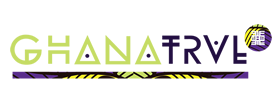
Finding information about your next trip around Ghana can be confusing. We are here to make things easy.
The ghana empire, christmas and new year's eve in ghana, lake bosumtwe, the beautiful art of glass bead making from ghana, wli waterfalls travel guide, interesting facts about ghana you didn’t know.

Latest Articles

- Edite Strautmane
- 17 Apr 2024
Add a dash of excitement to your meals with Shito! This popular hot black pepper sauce that's a cornerstone of Ghanaian cuisine is a feast for the senses. Our article warms you up to its slightly fiery flavours.

Independence Square in Ghana
- Places to see
- 22 Mar 2024

Cedi Bead Factory
- 18 Mar 2024

Sekondi-Takoradi
- 17 Mar 2024

Ghana's Independence Day
- Culture and People
- 05 Mar 2024

Interesting facts about Kwame Nkrumah
- 22 Feb 2024
UPCOMING EVENTS
Below is a selection of other upcoming events.

Akwasidae Festival

Junior Tourism Ambassador, 2024

Ghana International 21st Book Fair

Chale Wote Street Art Festival
Where to stay.
A selection of places to stay you can find on GhanaTRVL .

Ko-Sa Beach Resort
- Ampenyi, Central
- USD 25.00-90.00

Somewhere Nice
- Accra, Greater Accra
- USD 40.00-72.00

Reddington Chalets
- Whuti, Volta
- GHS 1500.00-5000.00

African Vibrations Hostel

E.A. Executive Lodge
- Kenyasi No.2, Ahafo

Labadi Beach Hotel
- USD 290.00-1500.00

Ocean Green Beach
- Prampram, Greater Accra

Franko Tavern
- Tema, Greater Accra
A selection of to enjoy time in or around the water at GhanaTRVL .

Labadi Beach

Busua Beach
- Busua, Western

Ko-Sa Beach

See all Water Fun...
Discover ghana.
Welcome to GhanaTRVL , your ultimate travel guide for everything you need to know when visiting Ghana. We are dedicated to providing you with the most up-to-date and comprehensive information on the best places to stay, eat, and explore in Ghana.
Driven by Insiders
Whether you are interested in touring the bustling cities of Accra and Kumasi, or taking in the natural beauty of the country's national parks and beaches, we have something for everyone. Our team of local travel experts have scoured the country to bring you the inside scoop on the top attractions and hidden gems in Ghana.
Keeping it Practical
In addition to our in-depth travel guides and itineraries, we also offer practical information on transportation, visas, and safety to help make your trip to Ghana smooth and enjoyable. Why wait? Start planning your dream trip to Ghana today with GhanaTRVL !

Ancestral Flavours Coffee and Juice Lounge
- Cape Coast, Central

Ko-Oki Beach Bar

Ko-Sa Restaurant

Trafix Restaurant

Centre For National Culture
- Kumasi, Ashanti

Carbon Nightclub

Selection of Places to See

- Sekondi, Western

- Krobo Odumase, Eastern
- 23 May 2023

Fort Amsterdam
- Kormantin-Abandze, Central
- 22 Feb 2023

Elmina-Java Museum
- Elmina, Central
- 08 Jan 2024

- Abono, Ashanti
- 05 Apr 2023

Tamale Travel Guide
- Tamale, Northern
- 08 Oct 2020

Nzulezu (Nzulezo): The Stilt Village of Ghana
- Nzulezu, Western
- 10 Oct 2023

- Koforidua, Eastern
- 04 Apr 2023

Pikworo Slave Camp
- Paga, Upper East
- 29 May 2023

Fort Metal Cross: A Historic Landmark in Ghana
- Dixcove, Western
- 13 Apr 2023
Highlighted tours
A selection of tours organised by partners you can find on GhanaTRVL .

Educational Tour of Ghana
- Tour dates are flexible.
Helgard Africa - Tours
- Max. group size: 20
Tour Guides
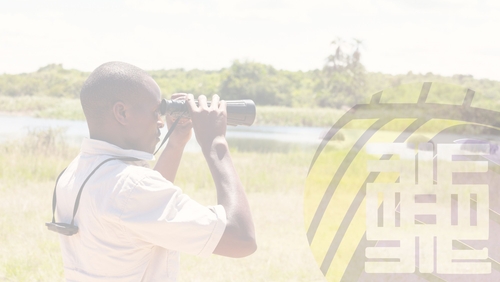
Kwesi Essel-Blankson
Tour operators.

HAWT Tours Ghana
- Madina, Greater Accra
Car Rentals

Pace Tours and Car Rentals

Joemay Car Rentals

Helgard Africa - Car Rental

- 08 Aug - 11 Aug , 09:00

- 19 Aug - 25 Aug

Ghana Independence Day
Supported community projects.

Kids in Tourism Ghana
Discover the World Through the Eyes of a Child with Kids in Tourism Ghana

Esther Dankwah Foundation
Building a world where all youth are safe and valued

Trashy Bags Africa
Transforming plastic waste into stylish eco-friendly products
Share your travel advice
Send us your suggestions, our partners.
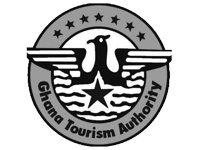
We’re sorry, this site is currently experiencing technical difficulties. Please try again in a few moments. Exception: request blocked
- Feast Ghana
- African Games
- Kwahu Paragliding
- #DecemberInGH
- Visit Ghana App
- Book City Tour
- Manhyia Palace Museum
- Kpetoe Agotime Kente Village
- Ntonso Adinkra
- Daboya Fugu
- Bonwire Kente Village
- Sirigu Pottery & Art
- Forts and Castles
- Kwame Nkrumah Memorial Park
- Cape Coast Castle
- Elmina Castle
- Komfo Anokye Sword Site
- Larabanga Mosque
- Bisa Aberwa Museum
- Assin Manso Slave River
- Nakore Mosque
- Paragliding Festival
- Kakum National Park
- Legon Botanical Gardens
- Aburi Quad Biking
- Mountain Afadja (Afadjato)
- Tafi-Atome Monkey Sanctuary
- Wli Waterfalls
- Lake Bosomtwi
- Nzulezu Village On Stilt
- Bunso Eco Park
- Bobiri Forest and Butterfly Sanctuary
- Wechiau Hippo Sanctuary and River Safari
- Asogli Yam Festival
- Odwira Festival
- Greater Accra
- Beyond The Return
- Year Of Return
- Travel Information
- Flight & Transport
- Ghana Gurus
- Directory Of Licensed Enterprises
- Travel & Tours
- Ghanaian Name
- GTA Services
- PANAFEST/Emancipation
- DecemberInGH
- Year of Return
- Latest News
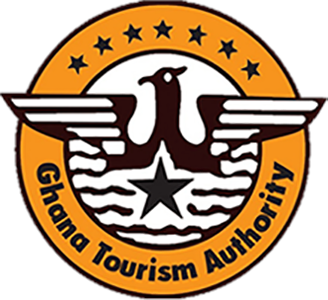
Essential Handy Tips
Travel Tips
Embassy of the Republic of Ghana
Moscow, russia, our sections, information section, diplomatic staff.
H.E. Oheneba Dr Lesley Akyaa Opoku-Ware
Ambassador, Head of Mission
Mr Herbert Addy-Nettey
Minister-Counsellor, Deputy Head of Mission
Dr Abiel Ashitey Armah
Minister-Counsellor, Head of Chancery
Mr Leonard Amartey Telfer
First Secretary, Head Consular and Education
Mr Terry Okoampah
First Secretary, Protocol and Consular
Ms Henrietta Anyetei
First Secretary, Administration
Mr Tawiah Kyei-Baffour
First Secretary, Finance and Accounts

IMAGES
COMMENTS
The Ghana Tourism Authority is pleased to announce the 2023 Tourism Report, which provides an in-depth of the tourism industry in Ghana on Monday, 29th April, 2024 at the Accra Tourist Information Center (ATIC). The tourism report which is mostly based on primary data collection is a valuable resource to help our stakeholders better […]
Enroll in the Smart Traveler Enrollment Program (STEP) to receive security messages and make it easier to locate you in an emergency. Call us in Washington, D.C. at 1-888-407-4747 (toll-free in the United States and Canada) or 1-202-501-4444 (from all other countries) from 8:00 a.m. to 8:00 p.m., Eastern Standard Time, Monday through Friday ...
GHANA TRAVEL REQUIREMENTS. Individuals traveling to Ghana are required to strictly adhere to the following new directives as stated by Ghana's President during his 16 th address to the Nation on Measures Taken Against the Spread of the Coronavirus:. All passengers arriving in Ghana must be in possession of a negative COVID-19 PCR test result from an accredited laboratory in the country of ...
1. Gather the necessary documents for entry. Getting the paperwork together to visit Ghana is a process on its own and can be pricey. All visitors to Ghana must have a valid visa, and they range in cost depending on whether you apply for a single-entry or multiple-entry visa.Your visa for Ghana can take nearly three weeks to arrive unless you shell out extra for an expedited service.
Ghana is located in a subtropical zone, with temperatures over 30°C all year long. The rainy season is typically May to September, and temperatures drop slightly during these months. Tamale and the wider northern Ghana region is hotter and more arid, with temperatures typically in excess of 35°C.
Travelling to Ghana. FCDO travel advice for Ghana. Includes safety and security, insurance, entry requirements and legal differences.
Visit the CDC page for the latest Travel Health Information related to your travel. Areas Near the Northern Border in the Upper East and Upper West Regions - Level 2: Exercise Increased Caution. U.S. citizens traveling in Ghana should exercise caution while visiting border areas, in particular the northern border, and be sure to read Security ...
As one of the most popular tourist destinations in West Africa, Ghana has something for every kind of traveler. From its cosmopolitan capital to historic cities steeped in Ashanti culture, the country is known for its urban flair; while its parks and game reserves are filled with exotic wildlife. On the coast, secluded beaches are interspersed ...
Ghana. Africa. Suffused with the most incredible energy, Ghana is one of Africa's biggest attractions, with welcoming beaches, gorgeous hinterland, diverse wildlife and vibrant cities. Best Time to Visit. Best Places to Visit.
Passport validity requirements. To enter Ghana, your passport must have an expiry date at least 6 months after the date you arrive. Check with your travel provider that your passport and other ...
To call for emergency services while in Ghana, dial 193 for an ambulance, 192 for the fire department, and 191 for the police. Write these numbers down to carry with you during your trip. Learn as much as you can about Ghana before you travel there. A good place to start is the country-specific information on Ghana from the US Department of ...
ghana tourism authority - head office. p. o. box gp 3106, accra, ghana. +233 307007100
Top Ghana Tours. When visiting Ghana, consider booking one of these top-rated tours: Ghanaian Naming Ceremony & Home Coming Experience. Accra To Cape Coast And Elmina Day Tour. Experience the Beauty, History & Culture of Accra in a Day. Full-Day Accra Safari & Boat Cruise Private Tour. Quad Biking in the Mountains. Home Cooking Class by Auntie K.
Ghana is a tropical country with a hot and humid climate. Average daily temperatures range from 30°C (86°F) during the day to 24°C (75°F) at night. In northern Ghana, rainy season occurs between April and October, while in the south of the country, rainfall is experienced between April and June and the months of September and October.
GHANA ENTRY REQUIREMENTS All persons entering Ghana must have a valid passport or Travel Document establishing the identity of the holder. THE FOLLOWING CATEGORIES OF PERSONS ARE EXEMPT FROM ENTRY VISA REQUIREMENTS TO GHANA: Citizens from the below-listed ECOWAS Member States Benin Burkina Faso Cape Verde Côte d'Ivoire The Gambia, Guinea Bissau Guinea, Guinea-Bissau Liberia Mali Niger ...
Our team of local travel experts have scoured the country to bring you the inside scoop on the top attractions and hidden gems in Ghana. Keeping it Practical In addition to our in-depth travel guides and itineraries, we also offer practical information on transportation, visas, and safety to help make your trip to Ghana smooth and enjoyable.
Ghana - Level 3 Reconsider Travel. Reconsider travel to Ghana due to COVID-19. Read the Department of State's COVID-19 page before you plan any international travel. The Centers for Disease Control and Prevention (CDC) has issued a Level 3 Travel Health Notice for Ghana due to COVID-19. While the country's land, air, and sea borders ...
International Travel Information. What you need to know before you go: visas, embassy & consulate locations, vaccinations, etc. International Travel Information: Learn More. ... Ghana's economy is highly dependent on the export of primary commodities such as gold, cocoa, and oil. In 2015, the Government of Ghana signed a $918 million extended ...
The Ghana Airports Company has updated their COVID-19 guidelines. Revision-8-KIA-Covid-Guidelines-Dec11-2021Download Read more on the Ghana Airports Company Limited website. NEW COVID 19 TRAVEL REQUIREMENTS IN GHANA Final-Press-Release_9th-December-2021Download
It lies between 4° and 11 ° North at the equator and has a coastline of 540 km. Business Hours. General - 8.00am - 12.00pm ; 13.00pm - 17.00pm. Banks - 8.00am - 12.00pm ; 13.00pm - 16.00pm. Health Requirements. Yellow fever vaccination required by all except infants under one year.
For enquiries, please email [email protected]. Apply now. Entry visa application (s) are to be submitted to the Consular Section to be followed by an interview. It takes a minimum of five (5) and a maximum of ten (10) working days to process all visa requests. However an emergency visa application is permitted at an extra fee of 4000 ...
General Information Welcome to the Consular Section of the Embassy of Ghana, Moscow. The Consular Section provides the following services: Visa Application Entry visa application(s) are to be submitted to the Consular Section to be followed by an interview. It takes a minimum of five (5) and a maximum of ten (10) working days to […]
Moscow has issued a warning to the US after Joe Biden approved the use of its weapons to strike inside Russia. Meanwhile, Ukraine claims the Russian military has had 1,270 casualties in the past ...
Welcome to the Consular Section of the Embassy of Ghana, Moscow. The Consular Section provides the following services: Information Section Diplomatic Staff H.E. Oheneba Dr Lesley Akyaa Opoku-Ware Ambassador, Head of Mission Mr Herbert Addy-Nettey Minister-Counsellor, Deputy Head of Mission Dr Abiel Ashitey Armah Minister-Counsellor, Head of ...